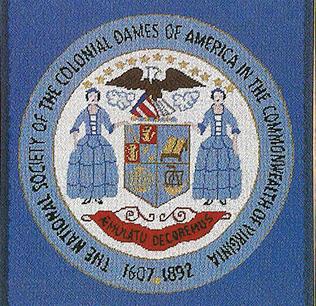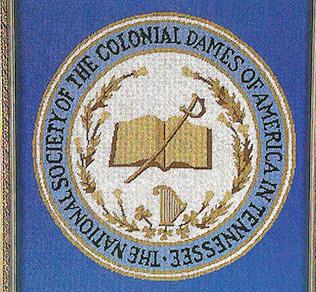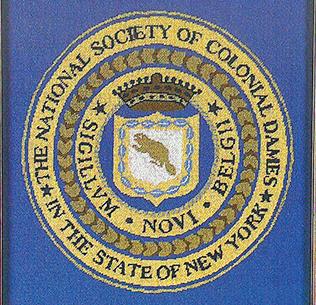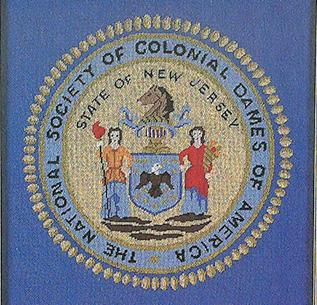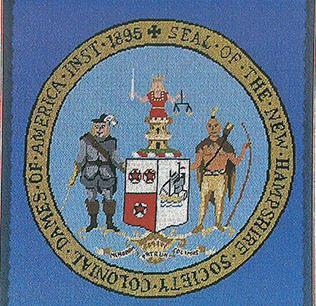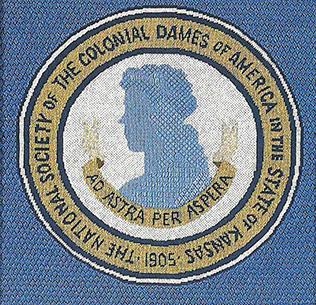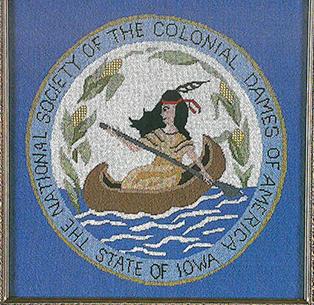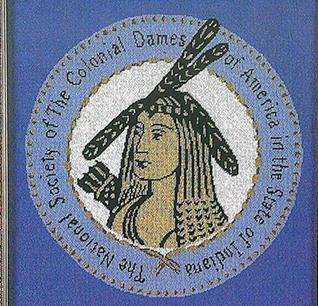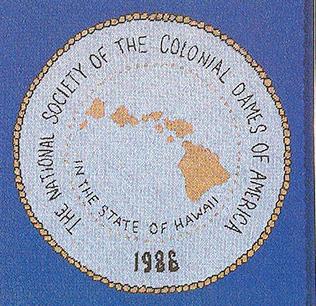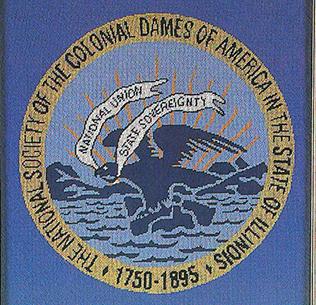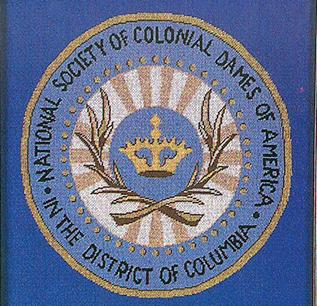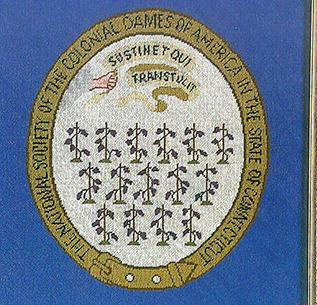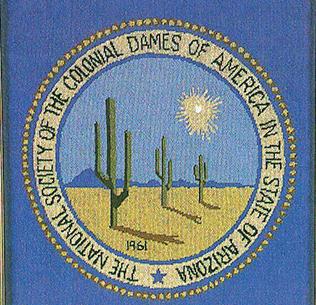





Ijust returned home from an extraordinary Dames trip to Vietnam and Cambodia. I learned so much about Southeast Asian culture, the people and the complex history of this part of the world. But the most palpable lesson was a deep appreciation and gratitude to be an American and live in a country with opportunity and freedom. This also resonates with our core values as Dames. These values are embedded in all that we do, including our genuine love of country and deep appreciation for our early history as a nation.
The lessons of this trip illustrate the prismatic characteristics of world history and our early American history. While history is factual, it is also based on personal experience and memory. These perspectives remind me that some accounts of our history will collide, some will complement and others will require reflection. It is this wide spectrum that provides the more complete history of America.
As you will read in this issue, we are continuing to discover new facts and new information about our history. It is through our preservation work and our collections that our understanding of early America and the people who lived during this time is expanded. This work enables us to showcase a cultural legacy that can empower this generation, and future generations, with the wisdom of our past.
As the stories told at our Great American Treasures sites and our list of qualifying ancestors are broadened to include more people who made important contributions to the founding of our country, we will demonstrate the importance of preservation for establishing a national memory, for instilling patriotism and for adding dimension to our national past.
An analogy from my trip to Southeast Asia is how some of the marvelous ancient temples in Angkor Wat have been preserved and held up by trees and overgrowth. It was a mesmerizing sight! While these magnificent trees are keeping these temples from crumbling, they are also actively destroying them at the same time. There are at least two sides to every issue, and this was a reminder to respect and honor all perspectives even if they differ from our own. Many perspectives are important to ensure a solid foundation for our future, including respect for all contributions that made America, America.
As we can see in our Annual Report, the generosity of our current members shapes our thriving community. The ongoing support allows us to continue to demonstrate our impact in all areas of our mission—preservation, history education and patriotic service. It is through our efforts to keep history alive for future generations of Americans that our legacy as Dames is assured. This is what connects us across the country.
With gratitude and appreciation for you all,

Katherine Taylor Cammack
EXECUTIVE DIRECTOR
Carol Cadou
Sonya Wolsey-Paige
Margaret “Peggy” DeStefano
Jean Perkins
Susan Walker
ADVISOR
Lee Scott
Email | damesdiscovery@gmail.com
Website | nscda.org
Please follow the NSCDA on your favorite social media.
Dames Discovery is published semiannually for the benefit of members of The National Society of The Colonial Dames of America.

Submissions deadline:
February 1: Spring/Summer
August 1: Fall/Winter
Dames Discovery accepts submissions from Corporate Societies. NSCDA assumes no responsibility for statements made or opinions expressed by contributing writers and artists. While every care is taken to ensure information is correct at time of going to press, it is subject to change, and NSCDA takes no responsibility for omissions or errors. NSCDA reserves the right to edit and place all content.
We celebrate Dames most enthusiastically in this issue. We hope you find the content familiar, enjoyable and appealing as we strive to highlight elements of the NSCDA mission and culture. In this spring/summer issue, we are delighted to unveil an expanded format, one that combines the Annual Report with regular Dames Discovery content.
Print communications have been produced throughout the National organization's existence. Dames Discovery finds its beginnings in the Dames Dispatch mailed newsletter, evolving into the current, semiannual magazine format. Always, we have endeavored to provide you with interesting information across many Dames' subjects in ways that complement the NSCDA eDispatch, which is emailed monthly to all Dames. Looking ahead, we will incorporate the Annual Report in future spring/summer issues.
Many thanks to Executive Director Carol Cadou, my partner in this redesign process. I have enjoyed her collaborative support, her innovative ideas and thoughtful execution, and most of all, her optimism and enthusiasm.
I note with gratitude the immense contribution of Dames who volunteer to write articles. Quite simply, nothing about today's magazine is possible without the diligence and aptitude of our copy editors: Peggy DeStefano, Jean Perkins, Lee Scott and Susan Walker. Claudia Lane has my eternal thanks, as well, for her incredible artistry which she so generously allows us to use as embellishment.
I am grateful for our readers and moved by the passion and conviction of our volunteers and membership. Because of you, we can look forward to many exciting years ahead!
Enjoy this ongoing perk of membership. Take a look! ― SWP
Artworks by Claudia Eoline Stewart Lane, Illinois Society. ABOVE : The NSCDA Badge, colored pencil on film. PAGE 6 : Hydrangeas, watercolor on paper.
MISSION: The National Society of The Colonial Dames of America is dedicated to furthering an appreciation of our National heritage through historic preservation, patriotic service and educational projects.
VISION: A strong, thriving organization that: engages an active membership of dynamic women of many age groups who are passionate about the mission; preserves the history and ideals of the founding of the United States through historic preservation, education and patriotic service—and promotes their on-going significance; cultivates a solid financial base to enable it to carry out its mission; strengthens its relevance to 21st century America; and is widely recognized by the public at large for its works.
VALUES : We are legacy-inspired, dedicated and visionary.
NSCDA STAFF
Ex Ecutiv E Dir Ector: Carol Cadou
Ex Ecutiv E A ssistA nt: Bryandra Riley
Dir Ector of finA ncE & A Dministr Ation:
Edith Laurencin
fAcilitiE s m A nAgEr: Rolando Montana
Dir Ector of P hil A nthroP y: Cecily Nisbet


m A rk Eting A nD c ommunic Ations
m A nAgEr: Tucker Broadbooks
DE v EloPmEnt A ssoci At E: Austin Teholiz
c ur Ator of c ollEctions: Maya Foo
c ollEctions & A rchiv E s m A nAgEr:
Samantha Hatton
Dir Ector of P rogr A ms A nD AuDiEncE
EngAgEmEnt: Samantha Dorsey
EDuc Ation m A nAgEr: Jessica McEvoy
P rogr A ms m A nAgEr: Mary Lesher
mEmbErshi P m A nAgEr: Molly Kilbridge
Ev Ents c oor DinAtor: Joseph Hlavac
EDuc Ation sPEci A lists: Alyssa Manfredi and Dynito Wiles
Although the mild East Coast winter may have disappointed school children hoping for snow days, the temperatures sped progress on the transformation of Headquarters spaces into new venues for national outreach and education. The opening of walls and floors to run cabling, fiber and conduit also revealed mysteries embedded in the historic fabric of Dumbarton House. New colleagues brought fresh enthusiasm for these initiatives, the NSCDA mission and national partnerships in hospitality and publishing. Noteworthy among our winter activities has been our collaboration with Editor Sonya Wolsey-Paige and Dames Discovery to place the NSCDA Annual Report in the hands of all Dames.
Among the rich articles in this issue, we hope you enjoy hearing from Curator of Collections Maya Foo about our fascinating cornice and wallpaper discovery, learning from Director of Philanthropy Cecily Nisbet about our new partnership with the National Trust’s Historic Hotels of America, and reading Historian Sally Connelly’s review of the first publication to assemble the NSCDA’s historic houses and landmarks. As part of our national celebration of the 250th anniversary of American independence, and with leadership funds provided by the South Carolina Society, I am delighted to announce a partnership with the non-profit Artist Book Foundation for a new publication that will highlight our Great American Treasures (GAT). Titled American Treasures: Historic People and Places, female historians and preservationists will be the primary contributors, with a focus on the stories of those who envisioned, built, experienced and preserved GAT structures, sites and monuments. Its release is scheduled for April 19, 2025—the 250th anniversary of the date Ralph Waldo Emerson termed, “The Shot Heard ‘Round the World.”
We are full steam ahead on a new and improved NSCDA website thanks to the appointment of Tucker Broadbooks as Marketing and Communications Manager. We look forward to serving our Corporate Societies and membership better through robust online resources enhanced by the integration of the website with Salesforce, our new software solution to streamline a dozen existing systems into one. Stay tuned for more information and other technology updates at the National Conference in Missouri from October 20–22, 2023. See you in St. Louis!

The cover image shows a decorative plaster cornice found beneath the floorboards of the second story of Dumbarton House. During renovations in the upstairs galleries in January, a hole was cut through the floorboards next to the chimney flue on the second floor to run electrical conduit. What began as a routine step in the construction process has uncovered a major discovery. This piece of cornice is thought to have been installed ca. 1799, during the initial period of the house’s construction. Dangling a bright lantern into the cavity enabled staff to see and photograph the cornice, as well as a large section of beautifully preserved and intact wallpaper of dense green foliage and tiny red flowers. The wallpaper appears to be hand stamped in four different colors. Unlike the cornice, the style of the wallpaper indicates that it may be from the latter half of the 19th century; however, paint analysis and further research are necessary to date both findings.
The Historical Activities Committee brings you the second season of FoodforThought.
This season's programming theme, “Food Pathways,” invites Dames and their guests to explore the amazing stories of how the foods we know and love made their way to this country. Speakers include professors, award-winning authors and culinary historians.
From the comfort of residences near or far, please join fellow Dames for four entertaining and informative Zoom presentations. To register for a presentation go to the News and Events page on the NSCDA.org website. Links will also be provided in the monthly e-Dispatch newsletters.
Friday, April 21, 2023 at 4 PM (ET) on Zoom
Yale University History Professor Paul Freedman will launch the season with a fascinating overview of modern American cuisine and how it got this way. It’s so much more than hamburgers, hot dogs and pizza!
Thursday, May 11, 2023 at 4 PM (ET) on Zoom
“THE FOOD
Bestselling author and senior editor for National Geographic Daniel Stone will recount the story of David Fairchild, a Gilded Age food explorer who traveled the globe and introduced diverse crops like avocados, mangoes and seedless grapes to the American plate. The Fairchild Tropical Botanic Garden, where much of the plant research was done to see if species could be adapted for use in the United States, still exists in Coral Gables, FL. It is cited frequently as the best botanical garden in the United States.
Thursday, September 7, 2023 at 4 PM (ET) on Zoom
Author and lecturer Constance Kirker, a retired Pennsylvania State Art History Professor, will talk about the origins, legends, celebration, production and health benefits of the beloved cherry tree.
Thursday, November 16, 2023 at 4 PM (ET) on Zoom
INDUSTRIAL PALATE”
Amy Bentley is Professor in the Department of Nutrition and Food Studies at New York University. She explores how the invention of commercial baby food shaped American notions of infancy, influenced the evolution of parental and pediatric care, and helped American palates become acclimated to the tastes and textures of highly processed industrial food products.
NH–1132
d orothy o rr C ole
(M rs . F rank G eorG e C ole)
January 18, 1930–October 20, 2022
NH Society President 1996–2000
Roll of Honor 2004
Henry Crane (1635–1711) CT
CT–2045A WI–625
sarah Catherine davies h o G oboo M
(M rs . b el F ord e . h o G oboo M )
April 6, 1928–December 30, 2022
National Vice President 2000–2004
WI Society President 1986–1988
Roll of Honor 1996
John Loomis 1622–1688 CT
VA–7614A WV–0943
tate M ason b rewster hudson
(M rs . sa M uel M. Hudson)
May 16, 1933–June 16, 2019
WV Society President 2001–2003
Roll of Honor 2004
John Lewis (1678–1762) VA
VA–5774A WV–0940
Julia r oseberry " b erry " tho M as hut C hinson
(M rs . John G uiher hut C hinson)
October 8, 1963–December 23, 2022
WV Society President 2004–2005
Roll of Honor 2004
Charles Lewis (1736–1774) VA
RI–0095A IL–00631

nan C y l ewis C ody hynes
(M rs . Ja M es aubrey hynes)
June 15, 1916–June 3, 2022
IL Society President 1973–1975
Roll of Honor 1982
Gregory Dexter (1610–1700) RI
GA–2613
e lizabeth M C Ca FF erty o xnard
(M rs . b en J a M in a lexander o xnard Jr .)
July 17, 1951–November 27, 2022
GA Society President 1999–2002
Roll of Honor 2003
Robert Jones Jr. (1718–1766) NC
NC–3042A AR–321
a nn a da M s Parke
(M rs . F rank h erbert Parke Jr .)
August 9, 1932–February 19, 2023
AR Society President 1988–1990
Roll of Honor 1991
John Haywood (1684–1758) NC
PA–2669
M arG aret b erwind s C hi FF er
(M rs . h erbert F rederi C k s C hi FF er )
October 11, 1923–October 13, 2022
PA Society President 1974–1977
Roll of Honor 1982
John Custis (1678–1749) VA
DE–0583
M ary e C ker h arrin G ton watkins
(M rs . John M. watkins)
January 25, 1929–January 18, 2023
National Recording Secretary 1996–2002
DE Society President 1993–1996
Roll of Honor 1997
Luke Watson (ca. 1630–1705) DE
NSCDA archives have amassed a growing repository of digital and physical assets that serve as our institutional memory. Keeping pace with advances in storage practice and data retrieval is fundamental to the collection's sustained viability.
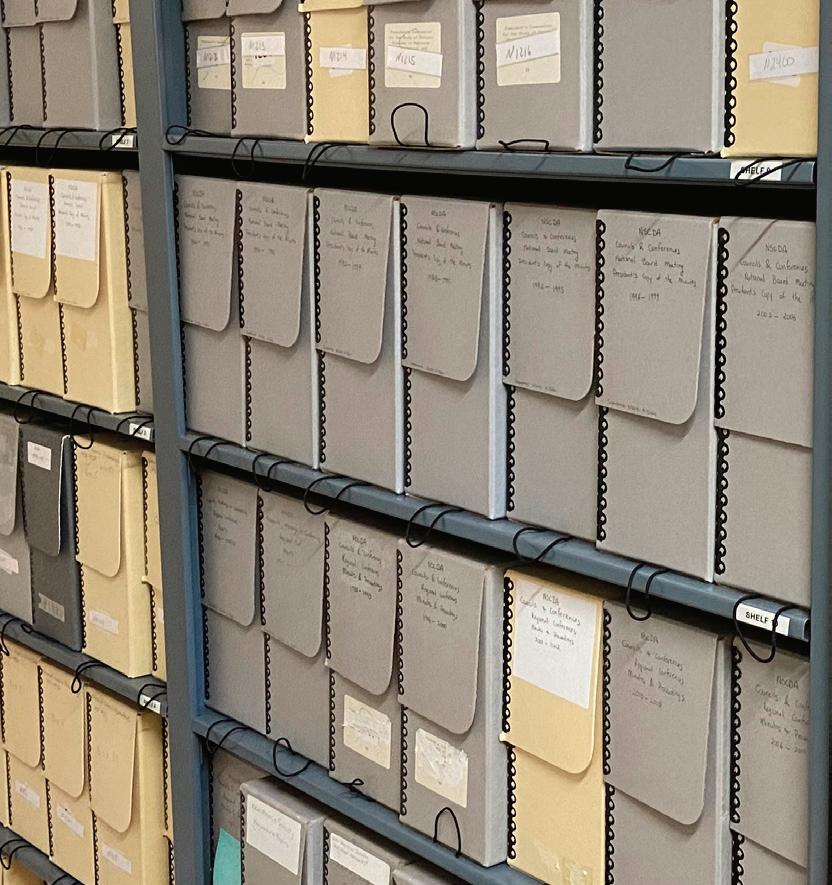

Councils and minutes of the National Board. More items pulled from its 18-page inventory are the Roll of Honor, the Seal of the National Society and the Seal of the N.S.C.D.A. Corporation.
When Dumbarton House opened as the NSCDA national headquarters 91 years ago, Clarinda Pendleton Lamar envisioned this property to be, among other things, a repository for those materials that detailed the undertakings and demonstrated the achievements of the membership. Today the NSCDA Archive mission is “to collect, organize, preserve and make accessible to members and professional researchers historically significant documents and other materials which reflect the origins and history of the NSCDA, and the activities of its officers, membership, curators and its staff.” The archive houses the NSCDA’s official papers and records, including minutes and proceedings of the Biennial
The archive’s current physical space of 196 square feet was created in 2017 (imagine a 10'x20' rectangular room). Samantha Hatton, Collections & Archives Manager, maintains the Archive Management Policy and shelf inventory as part of her archival duties. The materials initially moved into this space measured about 40 linear feet, but the contents have expanded rapidly to 230 linear feet, roughly 350 boxes in rolling shelving to maximize storage.
The Dames need to undertake long-range planning for the archive, discerning what is important to keep as well as how we will keep it. We hope for digitization of materials, but we need finding aids to
Archives at Dumbarton House • Photography by Samantha Hatton, NSCDA Collections & Archives
Managerassist in location of files, whether stored in archival boxes or in the cloud. While our National Board undergoes its governance restructuring, we should study how the changes that will occur should be noted through materials sent or retired to the archive. Development of a checklist and an annual review of what NSCDA officers and other contributors should send to the archive on a regular basis are important as well.
Accomplishing these steps will help 21st-century Dames meet Mrs. Lamar’s goal of being able to show to anyone who asks what we find important and worth our best efforts as Colonial Dames.
When an exquisite silk-on-silk embroidery of the Plan of the City of Washington came to auction in 2022, it was sought after as a rare example of an Alexandria, VA ca. 1800 schoolgirl’s embroidery depicting the original design for the young nation’s new capital. With its exciting discovery, there are now five marvelous maps worked by American schoolgirls, ages 10–16. You can find the embroideries at George Washington’s Mount Vernon, The Colonial Williamsburg Foundation, Winterthur Museum, The Collection of Shelley & Nicholas Schorsch and our very own National Headquarters Dumbarton House!
source for the dominant map on all five embroideries is identified as the L’Enfant and Ellicott Plan of the City of Washington
The city’s complex grid with street names is meticulously stitched in black threads between the verdant banks of the Potomac and Eastern Branch rivers. Other shared designs include the painted portrait of President George Washington, whose death in December 1799 plummeted the nation into mourning, and three medallions with personified emblems (stitched and painted) of Justice, Liberty and Hope. Try to spot the other similarities!
The embroideries are worked in metal-wrapped threads and polychrome silk threads (greens, yellows, blues, black, browns, off-white, pinks and reds) using a variety of stitches (satin, long and short, back, running, chain, laid and couched) on an undyed silk ground. Additional design elements are painted directly on the silk ground.
Individually each embroidery is magnificent and together they help expand our understanding of the education that schoolgirls received in the early 1800s. As part of their curriculum, young girls were taught to embroider. This challenging assignment would be the culmination of extensive practice and each girl could personalize her work. Three of the girls—Grace Turner Cleaver, Eve Resler and Susanna Williamson Atkinson— stitched their names on their work, while two are attributed to Elizabeth Graham and Maria Magdalene Lemoine through their respective provenances.
These design elements, their materials and stitching techniques are similar enough to suggest the five girls shared an instructor or school. Additionally, part of the research conducted on three of the embroideries by Grace Seaman Allen and published in her 2012 book, Columbia’s Daughters , considers Mrs. Cooke’s or Mrs. Reilly’s schools in Alexandria; however, primary evidence is elusive or inconclusive. No matter who taught these young ladies, the print
Subtle distinctions between the five embroideries suggest the girls used different versions of the Plan as their guide. A review of the city’s history helps clarify this. It wasn’t until 1800 that Washington, DC became the permanent capital of the United States, when it was relocated from Philadelphia. Once Congress approved the location in 1790, President Washington appointed Andrew Ellicott to survey the tract of land and Charles Pierre L’Enfant to design the city. L’Enfant’s plan was never fully realized as he was relieved of his commission in February 1792. Ellicott incorporated the essence of L’Enfant’s design while refining several elements. The first official printing of Ellicott’s Plan was in 1792 by Thackara & Vallance (Philadelphia) and Samuel Hill (Boston). Three years later a second version, with a few minor revisions, was printed by Samuel Reid (New York City).
One of the differences between the 1792 and 1795 printings is in the (mis)spellings of ‘Potomak’ and ‘Potomack.’ Maria Magdalene Lemoine and Elizabeth Graham used the 1792 ‘Potomak’ spelling. Eve Resler and Grace Turner Cleaver used the 1795 version of ‘Potomack’ in their embroideries.
Only Susanna Williamson Atkinson correctly spelled ‘Potomac.’ She stitched her age and year, “Aged 14 Years 1807” and included a verse, “No parent now remains my grief to share, No fathers [sic] aid, no
mothers [sic] tender care.” Upon further research, this author identified the original source for the verse as spoken by Andromache in Homer’s The Iliad. This discovery hints that the classics were taught. It also makes one wonder if Susanna’s poignant selection suggests she, too, was an orphan—albeit one with family resources that allowed her to continue her education.
Examining the nuances of the clues stitched into this rare group of embroideries offers a glimpse into the education of schoolgirls in the early 1800s and the considerable skill it took to create these ambitious, marvelous maps of the Plan of the City of Washington.





CLOCKWISE FROM TOP LEFT: Printed Map of DC Ellicott, Andrew and Thackara & Vallance. Plan of the city of Washington in the territory of Columbia: ceded by the states of Virginia and Maryland to the United States of America, and by them established as the seat of their government, after the year MDCCC. [Philadelphia: s.n, 1792] Map. https:// www.loc.gov/item/88694160/. Library of Congress; Maria Magdalene Lemoine Courtesy of Dumbarton House, Museum & National Headquarters of The National Society of The Colonial Dames of America; Grace Turner Cleaver Plan of the City of Washington with a portrait of George Washington, Grace Turner Cleaver Clark ca.1802. Courtesy of Mount Vernon Ladies’ Association; Susanna Williamson Atkinson The Collection of Shelley and Nicholas Schorsch; Eve Resler The Colonial Williamsburg Foundation. Purchased with partial gift funds from Cristy Lee Bennett, Dr. and Mrs. Thomas L. Isaac and Jeannine's Sampler Seminar; Elizabeth Graham Sampler by Elizabeth Graham, Alexandria, VA, 1800-1803. Silk; Linen; Paint, 2008.0057 A. Gift of Ruth McLaine and Family. Courtesy of Winterthur Museum.

Looking for a way to get involved in the Sampler Survey? If you enjoy history, research and learning, there is a Dames group you should join!
The NSCDA Sampler Survey committee is currently organizing a group to help expand on the research resource of 800 verses collected within Bolton & Coe’s American Samplers. Once formed, the research group’s mission is to help identify the origins/author and first usage of embroidered verses recorded in Bolton & Coe with the intention of making the Sampler Survey as informative as possible, and to sustain NSCDA’s reputation as a source of knowledge for the history of women’s education through needlework. Currently, there is no internet-accessible database for the chronology of verses used in American needlework.
Often the same song, hymn, poem, verse or saying were used by young girls in their needlework. The choice of words was often personal, had particular meaning or was part of a moral lesson. These subtle nuances can help unlock the student's or instructor’s identity, suggest the curriculum offered in that era and provide boundary dates for its creation.
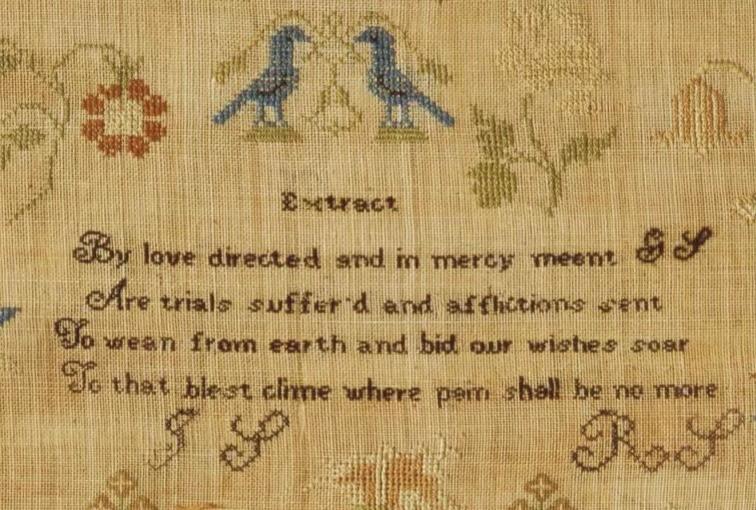
For example, in the needlework discussed in "Marvelous Maps" (preceding page), textile conservator Virginia Whelan identified Homer’s The Iliad as the source for Susanna Williamson Atkinson’s verse in 1807. From this, we can posit that Susanna may have been an orphan herself (helpful in genealogical search) and that the classics were part of a Virginia schoolgirl’s education in 1807.


how it works: Research group members will be asked to investigate the origins/authors of stitched verses on samplers. The findings will then be digitized with a finding aid (a string of three to five words) to help locate the appearance of its use in other samplers within the survey. As with the Sampler Survey, this information will be accessible to the public through the NSCDA website. With this resource, owners, scholars and cultural institutions will be encouraged to consult—and credit the NSCDA—when conducting their own research. As a living database, the Sampler Survey can be readily expanded with the inclusion of new samplers and their verses.
who to ContaCt: If you are interested in learning more or joining the Sampler Survey research group, please email SamplerSurvey@nscda.org.
THE NATIONAL SOCIETY OF THE COLONIAL DAMES OF AMERICA and National Headquarters Dumbarton House

The women of the NSCDA continue to support our mission of historic preservation, education and patriotism in a moment where it is more important than ever to ensure future continuity of our legacy as keepers of American history. After four years of being apart, 2022 brought us back together and offered glimpses of great things to come for our venerable Society.
Among the most significant events in 2022 was the celebration of the 90th anniversary of the opening of our National Headquarters Dumbarton House as a museum in 1932. Dames from across the nation gathered at Anderson House in Washington, DC to commemorate the occasion with an elegant gala, raising over $249,000 for the ongoing preservation work at National Headquarters.
With the success of the 90th Anniversary Gala, we will move forward with the NSCDA Master Site Plan, finalized by the Dumbarton House Board and NSCDA National Board in the fall of 2021. During the winter of 2023, the plan will recognize an ambitious goal of modernizing National Headquarters as a hub for Dames across the country to gain access to state-of-theart educational programming. The public spaces of the building will also be renovated to ensure that they are ready to welcome new generations of Dames and visitors for years to come.
Among the many accomplishments of 2022:
We continued our interpretive efforts at National Headquarters with a restoration of the historic Best Chamber, an eight-month-long project involving support from Dames, staff and material culture experts. The result is a revitalized space which offers visitors a better understanding of the home than ever before.
We continued our new initiative of providing financial support for our Great American Treasures begun last year with the Museum Alliance Grant Fund awards. In this second year, we gave a total of $25,000 to two well-deserving sites.
A special committee, Founding Females Initiative, was introduced at Biennial Council in October to add 250 women to the Register of Ancestors by our nation’s 250th anniversary in 2026.
At Biennial, we welcomed new National Officers and bade farewell to many of the leaders who saw us through the Covid-19 pandemic with resiliency and steady hands. We thank them for their perseverance and unfailing commitment to the Dames and wish them well.
The future is bright as we turn our attention to the next milestones in our organization’s history. We thank each of you for helping to secure the future of the NSCDA and National Headquarters Dumbarton House as we look forward to future endeavors and successes. We are forever grateful for your support.
With great appreciation,
Katherine Taylor Cammack President, NSCDA (2020– ) Edith H. Stickney Vice President, Headquarters Dumbarton House (2022– ) Jane Boylin Vice President, Headquarters Dumbarton House (2016–2022)
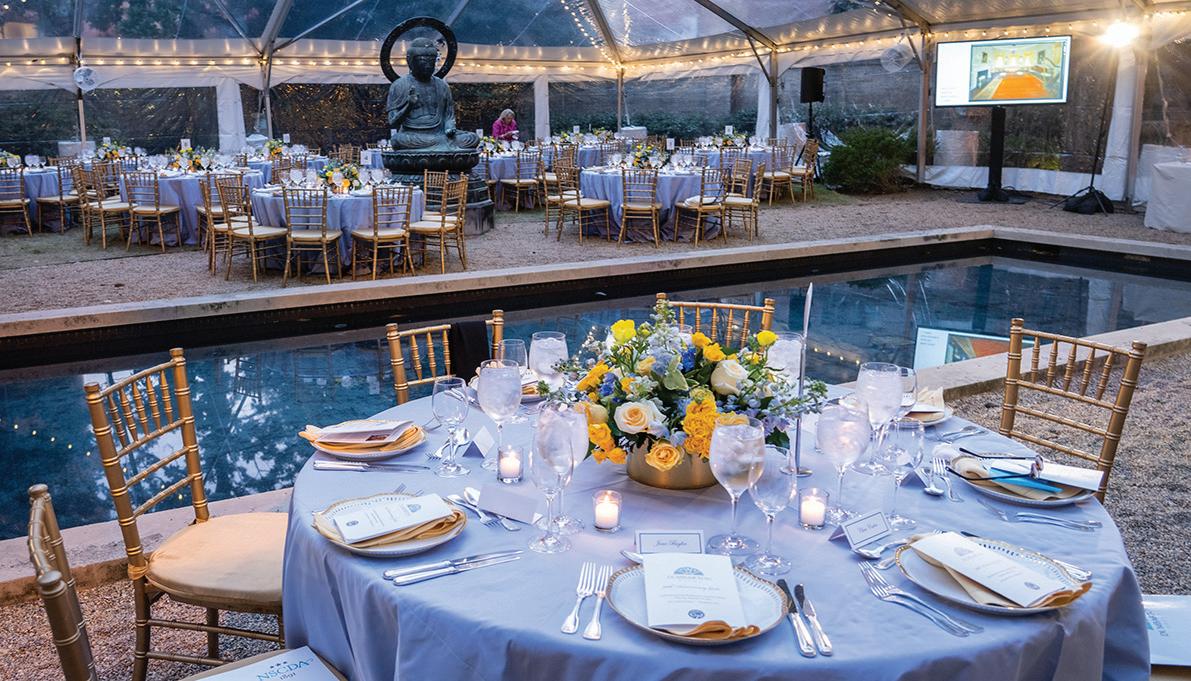
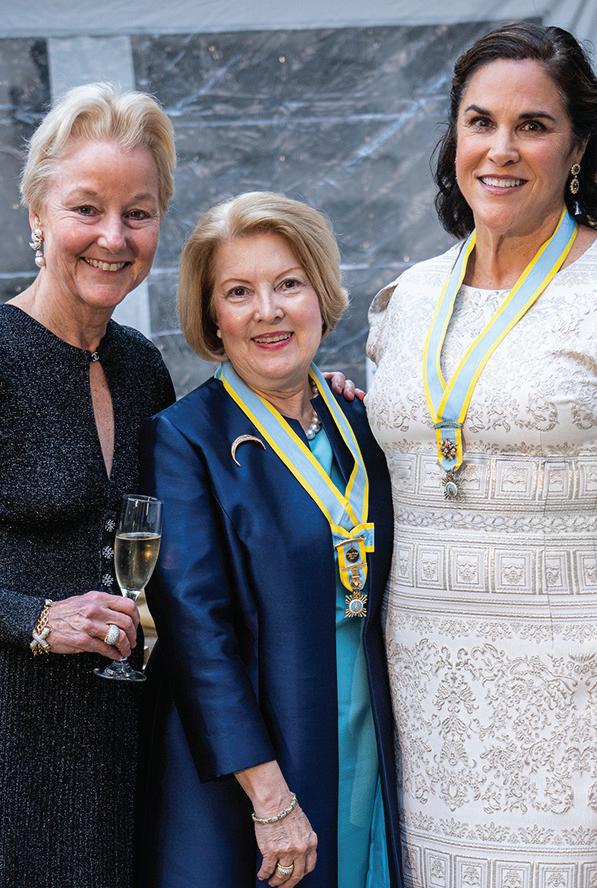


In September, NSCDA members and friends gathered at the Society of the Cincinnati’s Anderson House for a gala celebrating the 90th anniversary of National Headquarters Dumbarton House, which opened to the public in 1932. Patrons of the 90th Anniversary Gala raised over $249,999 for capital projects that support Headquarters and the Dumbarton House Museum.





The 64th Biennial Council brought members together for a week packed with business, informational sessions and fun. Highlights included a presentation of the inaugural NSCDA Award for Preserving History's Future to Charles Duell, the keynote address by the Smithsonian American Women’s History Museum Interim Director Lisa Sasaki and a wreath-laying ceremony at Arlington National Cemetery.
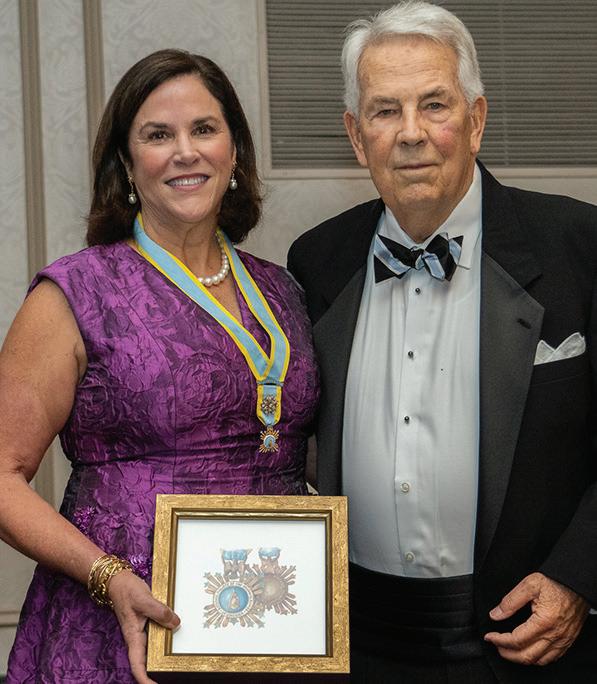
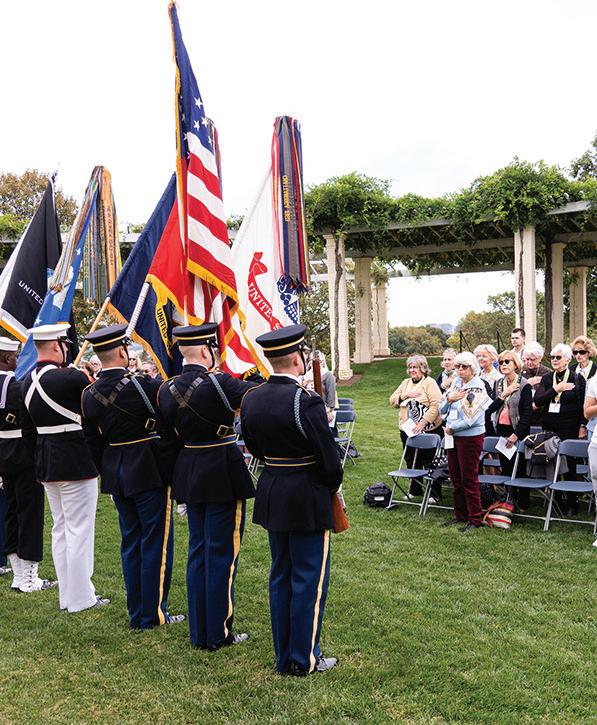
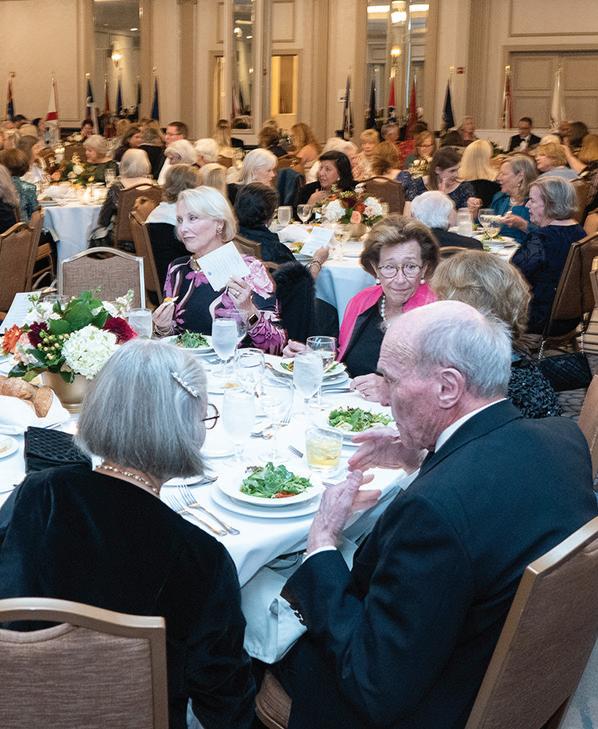


The opening reception at Biennial Council took place at the fabulous Hillwood Estate, Museum & Gardens in Washington, DC. In addition to exploring the site’s expansive grounds, members cheered as Museum Alliance Grant Fund awards, Lamar Awards and the newly renamed Virginia Stuart Cobb Award for Generosity and Purpose were presented.
Dumbarton House’s Best Chamber underwent a makeover in 2022. New wallpaper, furnishings and interpretation will help the room reflect the past more accurately than ever before and will enhance your next museum experience at National Headquarters.
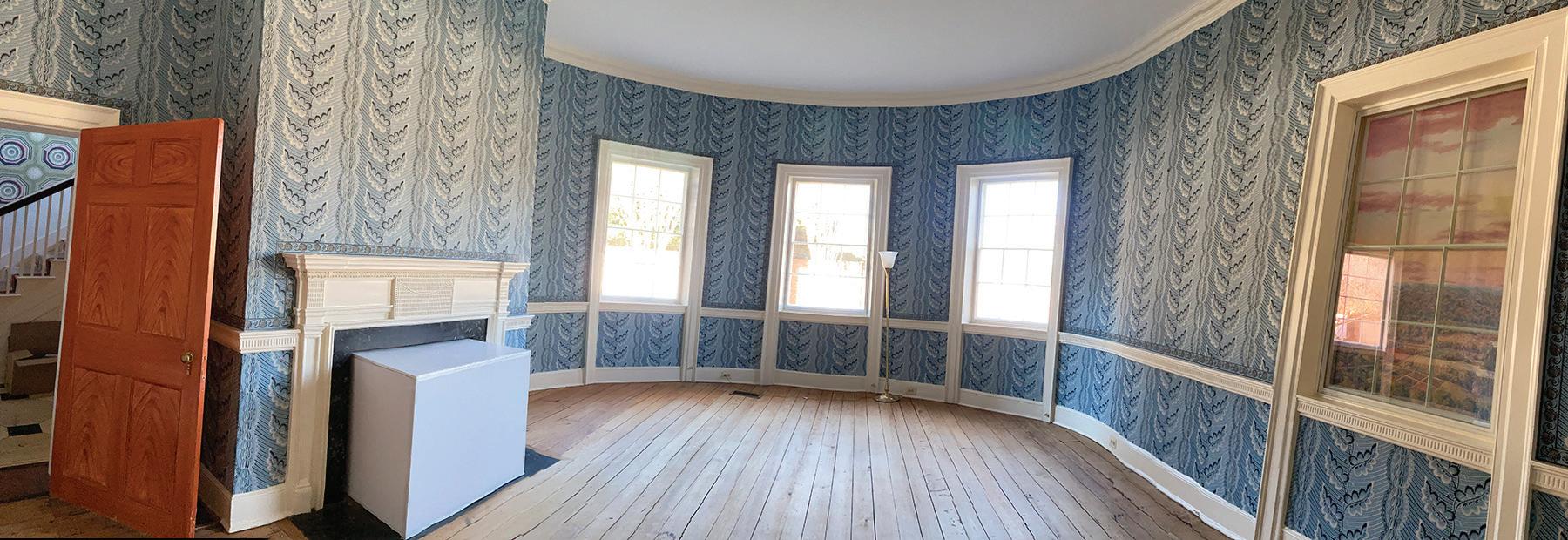
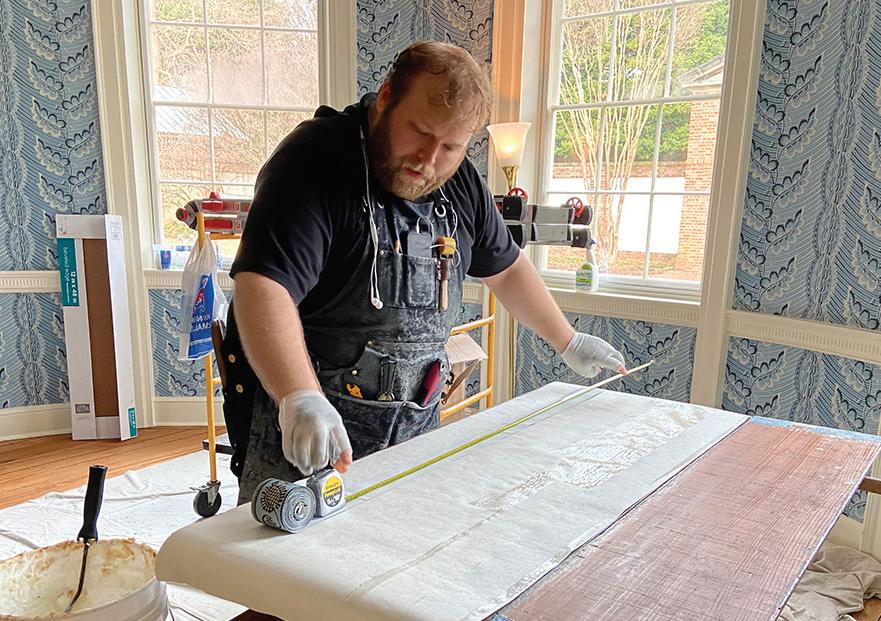

FINANCIALS | Fiscal Year 2022 (September 1, 2021 to August 31, 2022)
Katherine Cammack, NC National President
Ellen Boomer, DC Vice President Region IV
Lisa White, GA Vice President Region III
Caro Williams, CO Vice President Region I
Edith Stickney, FL Vice President NHQ DH
Virginia Keller, OH Vice President Region II
Mary Mundy, SC National Recording Secretary
Molly Carey, VA National Corresponding Secretary
Bethe Hagopian, MA National Treasurer
Francie Root, NY National Assistant Treasurer
Lynn Goldsmith, WV National Registrar
Sally Connelly, OH National Historian
Louise Rayford, AL
Carol Schultz, AZ
Dana Nixon, AR
Marian Bliss, CA
Jane Colonno, CO
Charbra Jestin, CT
Sally Kernan, CT
Jan Geddes, DE
Marta Dunetz, DC
Jane Arnold, FL
Catherine Cooper, GA
Virginia Nicholson, GA
Juanita Allen, HI
Freddie Hayes, IL
Sonya Wolsey-Paige, IL
Ginny Cain, IN
Lisa Liles, IN
Robin Staak, IA
Joyce Artz, KS
Ann Fleming, KY
Jayne Lobdell Middleton, LA
Margaret Schutrumpf, ME
Carol Gould, MD
Lydia Kimball, MA
Beth Robinson, MA
Julia Boomer, MI
Lois Mackin, MN
Lou Perry, MS
Christy James, MO
Margaret Freeman, NC
Frederika ver Hulst, NE
Jeri Crawford, NV
Paige Trace, NH
Marilyn Prado, NJ
Veve Brown, NY
Holly Hunt, NY
Lee Potter, NY
Elizabeth Donald, NC
Kinney Moore, OH
Kathy Walker, OK
Pat Wall, OR
Sally Wirts, PA
Betsey Hyman, RI
Angelyn Bridges, SC
Cardin Bradley, TN
Laura Roberts,TN
Eileen Moody, TX
Patty Michl, VT
Elsie Smith, VT
Liza Sackson, VA
Caroline Goedhart, WA
Nancy Senseney, WA
Dixie Wilson, WV
Barbara Meyer, WI
Miff Koltiska, WY
National Parliamentarian
Leonora Branca, TX
National Archivist
Meg Beasley, TN
Honorary Presidents
Nancy Nimick, NY
Joan Wickersham, MA
Stuart Cobb, AR
Hilary Gripekoven, OR
Marcy Moody, FL
Anna Duff, NY
Edith Stickney, FL Chair
Kate Zabriskie, MD Vice Chair
Candy Ainsworth, OK Recording Secretary
Sara Becker, VA Corresponding Secretary
Bethe Hagopian, MA Treasurer
Isabel Wallop, WY Region I Representative
Jean Perkins, IL Region II Representative
Anne Horstman, GA Region III Representative
Avery Jenkins, ME Region IV Representative
Katherine Cammack, NC National President Ex officio
Members at Large
Katy Amling, FL
Veve Brown, NY
Anne Horstman, GA
Sally Kernan, CT
Shirley McCrary, AL
Frances McGuire, OR
Marcy Moody, FL
Susan Walker, TN
Isabel Wallop, WY
Meg Beasley, TN
Catherine Cooper, GA
Beth Robinson, MA
Lucy Jackson, AL
Dana Nixon, AR
Joan Howell, AZ
Sarah Heatwole, CA
Stanzi Lucy, CO
Tita Hyland, CT
Gwinneth Clarkson, DC
Mary Hickok, DE
Helen Arnold, FL
Alice Gage, GA
Priscilla Growney, HI
Cynthia O’Brien, IA
Jean Perkins, IL
Jill Failey, IN
Janie Pappas, KY
Libby Siskron, LA
Connie Plimpton, MA
Kate Zabriskie, MD
Avery Jenkins, ME
Sarah Ollison, MI
Barbara Burwell, MN
Peri Pepmueller, MO
Winston Jenkins, MS
Elizabeth King, NC
Priscilla Grew, NE
Mary Waples, NH
Mary Prendergast, NJ
Christine Jones, NY
Candy Ainsworth, OK
Dora Rogers, PA
Betty Barton Blythe, TN
Susan Billipp, TX
Sara Becker, VA
Ludy Biddle, VT
Marilee Ahaalt, WA
Mary Sprague, WI
Kit Welford, WV
Kendie Hartman, WY
Honorary Members & Past Chairs
Louise Buonassisi, DE
Stuart Cobb, AR
Jane Newman, AL
Jodie Allen, SC
Jane Boylin, WV
Anna Duff, NY
Janie Grantham, VT
Nancy Nimick, PA
Each year, the NSCDA engages audiences around the country — from K-12 students to Great American Treasures visitors — through field trips, grants, scholarships and mission initiatives. The annual Honor Roll of Donors recognizes those who have generously contributed to ensuring our continued national focus on historic preservation, education and patriotic service. The following list recognizes gifts received between September 1, 2021 and August 31, 2022.
The First Ladies Society recognizes donors who have given $10,000 or more to support the mission of the NSCDA and National Headquarters Dumbarton House in Fiscal Year 2022.


Anonymous
Mrs. Candice Ainsworth
Mrs. Richard Thomas Crawford
Ms. Ruth Donohugh
Mary Steed Ewell, Trustee of the Martha Lena Walden Educational Trust
Mrs. Peter Fortune
Priscilla Grew
Shirley D. McCrary
Mrs. Frances McGuire
Mrs. Eileen Moody
Linda Crank Moseley
Mrs. Mary Mundy
Harriet and Warren Stephens
Edith Huntley Stickney, PhD
Mrs. James Otey Walker, III
Bank of America
The Lowry Murphey Family Foundation, Inc.
The Scrooby Foundation
Anne Thorne Weaver Family Foundation, Inc.
DONATIONS | Martha Washington Society | $5,000 to $9,999
The Martha Washington Society honors donors who support the mission of the NSCDA and National Headquarters Dumbarton House through annual contributions of $5,000 to $9,999.

Mrs. Kathleen Amling
Mrs. Elaine Blaylock
Mrs. Jane Boylin
Mrs. Angelyn Bridges
Katherine Taylor Cammack
Mrs. Virginia Stuart Cobb
Anna Duff
Mrs. Mary Bridges Gatewood
Holly Gray
Priscilla Growney
Mrs. Karen T. Hill
Mrs. James William Jackson Jr.
Carol O’Kelly Kayem
Virginia Lee King
Mrs. Priscilla Lawson
Mrs. Barbara Linville
Lowell L. and Louise K. Livinghouse
Susan and Edwin McCarthy
Mrs. R. Kendall Nottingham
Ms. Cynthia O’Brien
Mrs. Jean E. Perkins
Mona-Tate W. Powell
Lucy Rhame
Joanne H. Riddick
Mrs. Dora Rogers
Mrs. Isabel T. Wallop
Maude Anderson Williams
Mrs. Dixie Wilson
Henry E. and Consuelo S. Wenger Foundation, Inc.
Lucy Rosenberry Jones Charitable Trust

Mrs. Peter R. Beasley II
Mrs. Sara Becker
Mrs. William Allan Blodgett Jr.
Priscilla Brewster
Mrs. Genevieve Wheeler Brown
Mrs. Mary L. Dougherty
Tania G. Evans
Mrs. Elizabeth C. Field
Elizabeth S. Forman
Kay Giddens Glenday
Mrs. Jessica Smith Graney
Mrs. Tamara Grant
Mrs. Philip Heeth Grantham
Helen Hassan
Suzette Hofman
Mrs. Neil W. Horstman
Alyce B. Hoskins
Joan Benton Howell
Mrs. Elizabeth Hunt
Mrs. Alice Hyland
Mrs. Sally Kernan
Rosalie Lange
Mrs. Constance Lucy
Mrs. Sarah McComas
Mrs. Mark Howard Sokolsky
Marcy Mason Moody
Mrs. Dana Nixon
Anne Randolph
Bonnie A. Reilly
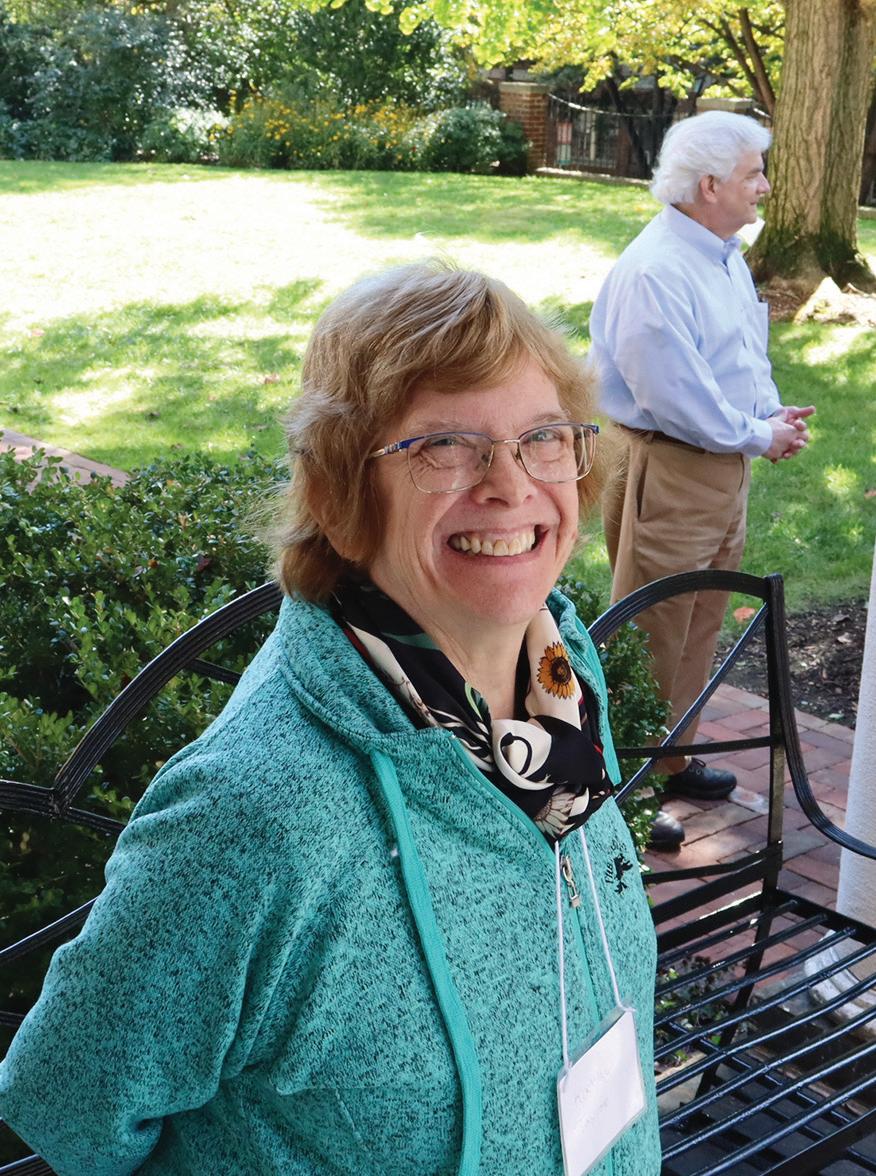
Mary H. Sprague
Mrs. Louise I. Tausché
Mrs. Caro Thomas Williams
Mrs. Christopher T. Zabriskie
Anonymous
Maqbool Aliani
Mrs. Josephine J. Allen
Mrs. Helen Arnold
Cort Atkinson
Mrs. Priscilla Barlow
Mrs. Charles C. Barr
Ms. Mary J. Bennett
Mrs. Susan Billipp
Marian Bliss
Mrs. Gwendolen Bryant
Mrs. Barbara Burwell
Mrs. Amélie Cagle
Mrs. Margo D. Caylor
Mrs. Gwinneth A. Clarkson
Mrs. Sally Connelly
Eulalie Hazard Davis
Mrs. Amy H. Dewey
Mrs. Laura Dreiband
Mrs. Lelia J. Farr
Mrs. Mark L. Feidler
Mrs. Robert L. Ferril III
Mary H. Fields
Olivia C. Ford
Dr. Chad Fowler
Mrs. Douglas K. Freeman
Ms. Nathalie Gilfoyle
Mrs. Robert F. Goldsmith Sr.
Ms. Claire W. Goodyear
Mrs. Mary Long Gordon
Mrs. James C. Greene
Mrs. Mark C. Griffin
Elizabeth M. Hagopian
Kendall Stewart Hartman
Mary N. and James D. Haugh
Kathleen Henry
Mary Hickok
Mrs. Helene Hill
Hayes B. Hitchens
Mrs. Mary H. Hodges
Mrs. George Allen Hughes
Mrs. Lyn Hunt
Catherine Huston Lorié
Mrs. Robert Joseph Joy
Mrs. Virginia Keller
Mrs. Kathryn Lerch
Mrs. Charles Andrew Liles
Patricia Meyers
Josephine J. Miller
Mrs. Sandra Noecker
Mrs. Sarah S. Ollison
Fay Hauberg Page
Mrs. John Daniel Palmer
Diana Parsons-Wagner
Courtney Pelley
Peri H. Pepmueller
Mrs. Connie Plimpton
Lee F. Potter
Mrs. John W. Poynor
Mary A. Prendergast
Mrs. Anne E. Riley
Dianne Robinson
Elizabeth Robinson
Shelley Church Rodgers
Barbara Baird Rogers
Mrs. Thomas D. Rutherfoord Jr.
Mrs. Robert Shepard
Leigh Simmons
Mrs. Elizabeth Siskron
Mrs. Barbara B. Sloane
Nancy deWolf Smith
Mrs. Robin Staak
Mrs. Rebecca W. Steorts
Mrs. Courtney C. Stephenson
Mrs. Ann H. Stokes
Mrs. John W. Stroh Jr.
Mrs. Gena K. Tarbutton
Mrs. Ben J. Tarbutton Jr.
Leila Edgerton Trismen
Gayle Trotter
Mrs. Lea Uhre
Phyllis K. von Stade
Mrs. Mary Waples
Sandra D. Webster
Mrs. Katherine Wellford
Mrs. Robin Wheeler Azqueta
Mary Ann Wirts
Mrs. Molly Yancey
Bell Family Foundation
The Brayman Family
Georgetown Garden Club
Halton Foundation
The Javitz Family Charitable Fund
Josephine C. Osbun Fund of the Delaware Community Foundation

Marilee Ahalt
Mrs. DeArmond Arbogast
Mrs. Katharine Armato
Mrs. Agnes Asman
Mrs. Sandi Atkinson
Marguerite Ayers
Caroline Dixon Bartman
Edith Bingham
Marcia Ross Blackburn
Ms. Ellen M. Boomer
Suzanne Borland
Cardin Bradley
Mrs. Rebecca Bromley
Laura L. Bucholz
Laura T. Buck
Mrs. Gretchen Bukowski
Holly Bullard
Henrietta Burke
Mrs. Carol Cadou
Mrs. Virginia Cain
Mary Balfour Calvert
Mrs. Molly Carey
Carla Carstens
Mamie Biggs Case
Mrs. Marilyn Case
Mrs. Elizabeth Chapman-Memery
Mrs. Jane Colonno
Mrs. James B. Congdon
Catherine Cooper
Mrs. Sara E. Davis
Lynnette Dawe
Mrs. Wayne Lamar Dear
Jane DeCell
Ms. Amy T. Dickinson
Mrs. Doris Dixon
Edith R. Dixon
Carol Bland Dolson
Elizabeth Donald
Mrs. Nancy Dorr
Mrs. Marta Dunetz
Susan G. Dunlap
Anne M. Dunn
Mrs. Jill Failey
Mrs. Judith Farrell
Mrs. Caroline Firestone
Mrs. Ann Fleming
Mrs. William Coleman French
Alice Gage
Mrs. Jan Geddes
Mrs. Dona Gibbs
Caroline Goedhart
Mrs. Carol Gould
Laura B. Gowen
Louise Gray-Grant
Mrs. Leslie Greene
Valerie Guenther
Mrs. Jeffrey W. Hamilton
Mrs. Elizabeth Stoll Harrington
Mrs. Bayanne Herrick Hauhart
Carolyn Hawley
Freddie Hayes
Lorill Haynes
Michelle Herr
Sarah Hewitt
Deborah W. Hicks
Mrs. Sara Hill
Mrs. Leslie Hudson
Mrs. Mimi Myer Hurst
Mrs. Elizabeth Hyman
Mrs. Julia Jackson
Mrs. Elizabeth S. Jacobsen
Mrs. Christy Franchot James
Ms. W. Avery Jenkins
Ms. C. Winston Jenkins
Mr. and Mrs. George Dean Johnson Jr.
Mrs. Mary B. Johnson
Christine Jones
Mrs. Pauline Keinath
Mrs. Elizabeth King
Fay Kirby
Mrs. Terri Kleinschmidt
Mrs. Donald F. Kohler
Mary Kulp
Mrs. Dencie Lambdin
Mrs. Claudia Lane
Katherine Hairston LaRosa
Louise Stillman Lehrman
Susan Carrington Lowder
Mrs. Mary P. Lunger
Lois Mackin
Donie Neal Martin
Miss Marianna G. McLean
Mrs. Jessica McLure
Mrs. Anne Rhett Merrill
Patricia Michl
Ms. Jayne Middleton
Leslie Miller
Mrs. Linda Moncrief
Ms. Mary Monroe
Katherine D. Murfree
Mrs. Beth Murphy
Brenda Nardi
Mrs. Virginia Nicholson
Mrs. John R. Nicholson
Cecily Nisbet
Ms. Kristen Nunnally
Becky Lee O’Connor
Mrs. Catherine C. Onnen
Ms. Anne Orsi
Elsie Owens
Mrs. Jane Pappas
Quindaro A. Paul
Patricia Paul
Karen Pogoloff
Harriet Dodd Port
Mrs. Marilyn Prado
Adrian Pressley
Mrs. Louise Rayford Sr.
Mrs. Carolyn Rayner
Mattie Roberts
Mrs. Rebecca Rogers
Francie Root
Paula Calhoun Ruffin
Dr. Carolyn G. Satterfield
Mrs. Dee Dee Scarborough III
Ms. Suzanne Schluederberg
Margaret Boyd Schutrumpf
Ms. Swann Seiler
Mrs. Nancy Senseney
Mrs. Joan Shannahan
Susannah Shubin
Stirling Cassidy Smith
Mrs. Elsie Smith
Ms. Peggy Snorf
Mrs. Gail Sollid
Mrs. David A. Spooner
Mary Olive Stephens
Ann Cox Strub
Gayle Tallman
Mrs. Susan Paige Trace
Susanne S. Tyler
Noren Ungaretti
Kathy Walker
Cynthia R. Wallin
Salome Edgeworth Walton
Elizabeth Webster
Anne Hatfield Weir
Mrs. Barbara Welch
Virginia Whelan
Margaret Avera Whitaker
Mrs. Lisa White
Mrs. Gladys Whitney
Mrs. Mary B. Wieler
Mr. Mark C. Williams
Mrs. Melinda Willingham
Isabella G. Witt
Mrs. Sonya Wolsey-Paige
Mrs. John O. Wynne
Huie-Dellmon Trust
Morel Family Fund
Standish Family Foundation Fund
Anonymous
Ms. Lee Allen
Martha Armstrong
Jane Arnold
Eden Baber
Mrs. Gina Bacon
Paula Black Baker
Virginia Banchoff
Mrs. Ann S. Barnes
Ms. Nancy L. Bassett
Mrs. Horace Binney Beale
Mrs. Kenneth H. Beard
Gin Bell
Llewellyn Bensfield
Mrs. Michael K. Benton
Mrs. Nancy Berchem
Mrs. Mary D. Bicknell
Mrs. Alton E. Blakley Jr.
Ellen Bland
Betty Barton Pride Blythe
Mrs. Thomas Bond
Julie Bookwalter
Mrs. Eleanore H. Boyse
Mary Bradshaw
Grace Mary Brady
Lil Oden Breard
Ann C. Brown
Mrs. Martha F. Brown
Mrs. Susan S. Burchenal
Mrs. Mark W. Buyck Jr.
Mrs. Daniel Thomas Cahoon
Mrs. Mary Cain
Ms. Kathryn L. Campbell
Minnie Cappel
Mr. and Mrs. William S. Carpenter
Sarah Carter
Alice Fajen Chang
Francesca Cinelli
Burney Pennington Clark
Patricia D. Clark
Linda Faulkner Condit
Mrs. Barbara Cooch
Mrs. James H. Cowden
Mrs. Hannah Cox
Donna Crisp
Anne F. Crumpacker
Mrs. Frederick Czerner
Katherine V. Dalton
Claire Reese Davis
Elizabeth Younger Dechant
Nancy Moncure Deiss
Mrs. Sarah Demarest
Elizabeth N. Dietel
Mrs. Linda Dillow
Mrs. Henrietta W. Dotterer
Ms. Elizabeth E. DuBose
Belle Brent W. Duchin
Mrs. Anne S. Farrington
Mrs. Zemula Fleming
Mrs. Carol Fleming
Mrs. John H. Flowers
C. Peyton Calvert Fowler
Georganna Francke
Elizabeth Fritz
Catherine Terrell Fuller
Mrs. William Patterson Garten
Leslie George
Ann D. Gibbs
Anne Gray
Susan Jones Gundlach
Rosa R. Halbert
Mrs. Betty Hall
Mary J. Ham
Mrs. Martha B. Hartfiel
Mrs. Leonard Jack Harnett
Heidi Hatfield
Lee Hathaway
Mrs. Richard H. Helmholz
Lee Helvey
Marian Wells Hemmer
Mrs. William Foster Hensel
Therese Robinson Hillyer
Elizabeth V. Hobbs
Carol Holcomb
Susannah Holloway
Carol S. Howell
Mrs. Karen Inman
Betty Ireland
Beth Jenkins
Linda Busken Jergens
Elizabeth B. Johnson
Mrs. Barbara Johnston
Catherine Kerkam
Nancy H. Keuffel
Fredricka Volckens
Kimball
Lydia Kimball
Lynda Kleene
Pamela Lafferty
Phoebe R. Levering
Elizabeth Lindsey
Jane Malarkey
Mrs. Marion H. Mariner
Elaine G. Martin
Mrs. Virginia H. Martin
Mrs. W. Swift Martin III
Mrs. Becky Mauldin
Mrs. Thomas K. McAteer
Mrs. Terrell McDermid
Mary Lee Powell McGregor
Catherine McKinney
Mr. Stephen A. McLeod
Amanda A. McNabb
Mr. and Mrs. William deB. Mebane
Laurie M. Meigs
Carol Devine Miller
Mrs. Charles B. Moncure
Mrs. Katharine L. Moore
Nancy Powell Moore
Ms. Ellen L. More
Susan Paige Morrison
Mrs. Carole K. Moss
Lindalee Mulligan
Anne P. Myers
Dorothy Hundley Neale
Mr. and Mrs. George A. Nicholson III
Mrs. A. Corkran Nimick
Nancy B. Norwood
Deborah S. Nutt
Mrs. Barbara O’Herron
Paula Hamilton Ott
Karen Koontz Parker
The Rev. Caroline Smith Parkinson
Alice A. Parsons
Mrs. Gay L. Pasley
Judith M. Perinchief
Eleanor J. Perkins
Mrs. E. Lee Perry
Mrs. Eleanor R. Peterson
Mrs. Kitty Petit
Nancy H. Place
Gwynne Potts
Mrs. Dorothy Pratt
Sallie Price
Mrs. Robert M. Pyle
Nancy Quarles
Martha Rankin
Victoria Reed
Lowrie Ebbert Reiter
Dr. Mary Revenis
Ms. Alice H. Reynolds
Margaret F. Rich
Dr. Elizabeth Rightmyer
Mrs. Craig Montfort Ripley
Mrs. C.B. Robertson III
Nancy Robertson
Kim Robey
Louise Ropp
Mrs. Anne A. Russo
Elizabeth Sackson
Mrs. Marcia Saunders
Lee Ann Schneider
Mrs. Samuel A. Schreiber
Sally Schulz
Shelah Kane Scott
Dr. Angela M. Sewall
Mrs. Jeffrey Scott Shaver
Mrs. Lucy W. Shepard
Mrs. Mary P. Shepard
Katharine Sherrard
Mrs. Wolfgang A. Shindlebower
Mrs. Sally Smyser
Debora Swan Snyder
Barbara Hiscock Spaeth
Mrs. Julia Stover
Mrs. Martha E. Strachan
Ruth Stryker-Gordon
Mary Lee W. Sullivan
Violette W. Sutton
Mrs. Gayle R. Tallman
Theda TankersleyOcheltree
Jane Tatibouet
Mr. David M. Taylor
Mrs. Kathleen Taylor
Payson Tilden
Carol D. Trapp
Jane Truckenbrod
Julie Uhl
Mrs. Francita S. Ulmer
Mrs. Jacob Van Dyke Jr.
Deborah Van Zijl
Mrs. Susan Verell
Mrs. Judith Mann Villard
Mrs. Harry J. Warthen III
Virginia Eason Weinmann
Constance F. West
Mrs. Nan Shaver Whalen
Michelle Henderson White
Tracy Sandford Whitehead
Amy H. Wilbanks
Ann Stevens Williams
Mrs. Katherine Williams
Sarah Wilsterman
Ms. Sinclair Winton
Courtenay Robinson Wood
Barbara Wood
Avery Woods
Avis Brown Yount
Jean D. Zerges
The CunninghamGardiner Foundation
The Faulkner Family Foundation
The John and Ruth Huss Fund
NSCDA in AL, Auburn Opelika Town Committee
NSCDA in AL, Birmingham Town Committee
NSCDA in AL, Mobile Town Committee
NSCDA in AL, Montgomery Town Committee
NSCDA in AL, Shoals Town Committee
NSCDA in AL, Tennessee Valley Town Committee
NSCDA in AL, Tuscaloosa Center
NSCDA in Alabama
NSCDA in Arizona
NSCDA in Arkansas
NSCDA in CA, Los Angeles, Pasadena, Santa Barbara Town Committee
NSCDA in CA, San Diego County Committee
NSCDA in California
NSCDA in Colorado
NSCDA in Connecticut
NSCDA in Delaware
NSCDA in the District of Columbia
NSCDA in FL, Miami Town Committee
NSCDA in FL, Naples Town Committee
NSCDA in FL, Orlando Town Committee
NSCDA in FL, Palm Beach Town Committee
NSCDA in FL, Tallahassee Town Committee
NSCDA in FL, Tampa Town Committee
NSCDA in Florida
NSCDA in GA, Madison Town Committee
NSCDA in GA, Albany Town Committee
NSCDA in GA, Americus Town Committee
NSCDA in GA, Athens Town Committee
NSCDA in GA, Atlanta Town Committee
NSCDA in GA, Augusta Town Committee
NSCDA in GA, Brunswick Town Committee
NSCDA in GA, Marietta Town Committee
NSCDA in GA, Moultrie Town Committee
NSCDA in GA, Thomasville Town Committee
NSCDA in Georgia
NSCDA in Hawaii
NSCDA in Illinois
NSCDA in Indiana
NSCDA in IA, Davenport Borough
NSCDA in IA, Des Moines Borough
NSCDA in Iowa
NSCDA in Kansas
NSCDA in Kentucky
NSCDA in LA, Alexandria Town Committee
NSCDA in LA, Baton Rouge Town Committee
NSCDA in LA, Shreveport Town Committee
NSCDA in Louisiana
NSCDA in MD, Eastern Shore Town Committee
NSCDA in Maryland
NSCDA in Massachusetts
NSCDA in Michigan
NSCDA in Minnesota
NSCDA in Mississippi
NSCDA in Missouri
NSCDA in New Hampshire
NSCDA in New Jersey
NSCDA in New York
NSCDA in NC, Buncombe County Town Committee
NSCDA in NC, Cabarrus County Town Committee
NSCDA in NC, Cumberland Town Committee
NSCDA in NC, Lenoir Pitt Town Committee
NSCDA in NC, Rowan Town Committee
NSCDA in NC, Wake County Town Committee
NSCDA in North Carolina
NSCDA in Ohio
NSCDA in Oklahoma
NSCDA in Oregon
NSCDA in PA, Allegheny Town Committee
NSCDA in Pennsylvania
NSCDA in Rhode Island
NSCDA in SC, Lowcountry Town Committee
NSCDA in SC, Columbia Town Committee
NSCDA in SC, Greenville Town Committee
NSCDA in SC, Spartanburg Town Committee
NSCDA in South Carolina
NSCDA in Tennessee
NSCDA in TX, San Antonio Town Committee
NSCDA in TX, Dallas Town Committee
NSCDA in TX, Fort Worth Town Committee
NSCDA in TX, Houston Town Committee
NSCDA in TX, Waco Town Committee
NSCDA in Texas
NSCDA in Vermont
NSCDA in VA, Alexandria Town Committee
NSCDA in VA, Blue Ridge Town Committee
NSCDA in VA, Rappahannock Town Committee
NSCDA in VA, Roanoke Town Committee
NSCDA in VA, Susan Constant Town Committee
NSCDA in Virginia
NSCDA in Washington
NSCDA in WV, Cabell Town Committee
NSCDA in West Virginia
NSCDA in Wisconsin
NSCDA in Wyoming
Gifts were made in memory of:
Mrs. Miriam Adams Howe by Laura Howe Koh
Elizabeth Fuller Allen by Lee Allen-Russell
Mary Spotswood Baskerville Crenshaw Jr. by Sallie Van Pelt Feild
Serena Totman Bechtel by Lisa F. Totman
Barbara Wilbur Faith Bennett by Bobbie Broyles
Mrs. Clinton C. Berry by Mrs. James K. Lowder
Louis Bertelli by Frances M. Bertelli
Alice Bertelli by Frances M. Bertelli
Mrs. Max W. Billinger Jr. by Mrs. Leslie E. Youngblood
Mrs. Robert Edmund Boomer by Catherine Boomer
Mrs. Phelps Brown by Mrs. William Gwynne Anderson
Bill and Frenchie Bush by Mrs. Virginia Taylor
Mrs. Mary Edna Bushnell by Mrs. James H. Miller III
Mrs. John P. Calhoun by Harriet and Warren Stephens
Mrs. Albert Randolph Candler by Susan Samuel
Mrs. Mary Conger by NSCDA in the District of Columbia
Mrs. Heidi Cook by Mrs. Leslie E. Youngblood
Mrs. Sue Burr Cook by Sue Cook Powell
Mrs. Constance Jewett Cory by NSCDA in Iowa
Mrs. Margaret Crockett by Mrs. Virginia Stuart Cobb
Mrs. William Dupont Dahling by Bill Dahling and Kim Devlin
Sally S. Day by Ann McQueen
Mrs. Eva Allen de Laureal by Mrs. Eric R. Harrington
Mrs. John Dobbins by Leslie Dobbins
Mrs. Philip Irby Dunklin by Mrs. Carter Smith Jr.
Ada Lewis Sohlberg Eason by Virginia Eason Weinmann
Mrs. George Singer Ebbert Jr. by Lowrie Ebbert Reiter
Anne Bradley Elder by Susan Billipp
Mrs. C.J. Ellis by Louise E. Burnett
Mrs. Oleg Constantine Enikeieff by Nancy Enikeieff Ody
Alice Kieckhefer Fajen by Alice Fajen Chang
Mrs. William Allen Fenimore by Margaret F. Morris
Mrs. Sally Ann Fairchild Foy by Marie Harris Clarke
Mrs. Marie Archange Navarre Fuger by Mrs. Mary Page Hickey
Dolly Webb Galloway by Carol Devine Miller
Mrs. Jean Perry Soule Gamble by Anne Wilkin
Mrs. Sidney Ryan Gardner by Suzette Hofman
Mrs. Deborah Champion Geier by Mrs. Martha E. Strachan
Mrs. James Morgan Goldsmith by Harriet Messer Goldsmith
Mrs. Dorothy Fay Gould by Fay Hauberg Page
Mrs. Downey Milliken Gray Jr. by Mrs. Philip Heeth Grantham
E. S. Gray by Mrs. Louise W. Grant
Mr. Harold S. Grehan Jr. by Mrs. John O. Wynne
Caroline Belser Grimball by Maria Grimball Harvin
Mrs. Elizabeth Hunter Hairston by Katherine Hairston LaRosa
Mrs. Frances Mildred Hinds Hansen by NSCDA in IA, Davenport Borough
Ms. Sally D. Hanson by Ann McQueen
Mrs. Whitney Knowles Hardy by Louise Gray-Grant
Mrs. Frederick Roland Hazard by Mrs. James L. Goedhart
Mrs. James Richmond Hobson by Mrs. W. Swift Martin III and NSCDA in the District of Columbia
Mrs. Florence Hughes by Mrs. Virginia H. Martin
Mrs. Mary Wardlaw Huston by Catherine Huston Lorié
Mrs. John Bryan Johnson Jr. by Mrs. Reeder E. Ratliff
Edna Elizabeth Johnson by Lucinda Pratt
Adrienne Henderson Johnson by The Javitz Family Charitable Fund
Ms. Grace H. Jones by Grace Ross
Mrs. Edmund H. Kendrick by Mrs. William Gwynne Anderson
Suzanne Davis King by Mrs. William Coleman French
Eleanor Maupin Kirkman by Lynn Mackle
Mrs. Betty Koch by NSCDA in IA, Des Moines Borough
Mrs. Casper P. Kramer Jr. by Ms. Amy G. Kramer
Fanny Knight G. Ladd by Florence L. Ladd
Mrs. Florence Greaves Leatherbury by Florence L. Ladd
Charles Winslow Lee by Elizabeth W. Lee
Mrs. Elizabeth Lovett by Mrs. Elizabeth R. Duss
Mrs. James Burton Lyle by Dr. Ann L. Rethlefsen
Mrs. Deborah Williams Mackenzie by Mrs. Marion Christoph
Mrs. Julia Martin by Mrs. Julia M. Train
Mrs. Linda Mattingly by Mrs. Anne B. Pierson, MD, Anonymous and Mrs. R. Kendall Nottingham
Mr. Miles Elvin Mauney by Rene Schenck
Anne Leslie McCarthy by Jill McCarthy
Alice Loyall McCaw by Anne McCaw Smith
Mrs. James C. McClain by Linda McKinney Howard
Mrs. Sarah Antoinette Hightower McCullough by Mrs. Charles M. Mann Jr.
Mrs. John Francis McDermott Jr. by NSCDA in Hawaii
Mr. William McKenzie by Mrs. William Y. McKenzie Jr.
Leila LaRoche Wilson Miles by Louisa Miles Montgomery
Mrs. Russell Lawrence Mills by Helen Hassan
Tina Thatcher Minter by Mimi Thatcher Davidson
Mary Booth Moncure by Nancy Moncure Deiss and Mrs. Charles B. Moncure
Mrs. Emily Sinclair Mumford by Sally Fadely
Mrs. Sarah Pipes Munson by Mrs. Howard Kent Soper
Mrs. Charles Owen Nation by Stirling Cassidy Smith
Elizabeth M. Nelson by Margaret N. Harvey
Mrs. George A. Nicholson Jr. by Mrs. David D. Hamm and Mr. and Mrs. George A. Nicholson III
Charlotte O’Brien by Starr Hagenmeyer
Mr. George Port by Mrs. Philip Heeth Grantham
Eleanor Calvert Tompkins Lewis Powers by Cornelia Peyton Calvert Fowler
Mr. Maurice A. Preston by Karen B.P. Brigham
Ruth Armstrong Radl by Ann von Germeten
Ann Mary Radl by Ann von Germeten
Mrs. Kenan S. Rand by Mrs. Ann S. Barnes
Mrs. Macon Riddle by Ann Cox Strub
Robert B. Rogers Jr. by Anonymous
Leslie Rosevear by Linda F. Greenberg

Mrs. Bruce J. Sams Jr. and Mildred S. Shafer by Gayle Trotter
Anne Lannon Scott Shanklin by Anne Shanklin Warlick
Mrs. Julia Brown Shields by Ms. Julia Lewis Shields
Mrs. Nanine Byrne Simmons by Leigh Simmons
Mrs. Stephanie Cowper Smith by Rosabel Cowper Gherini
Mrs. Frances D. Spier by Louise Stillman Lehrman
Anna Stearns by Mrs. Elizabeth C. Field
Nancy Hall Holbrook Stillman by Victoria A. Withers
Mrs. Coates Stuckey by Mrs. Kenny M. Charbonnet
Mrs. Beatrice Colby Synnott by Marcia G. Synnott
Mr. and Mrs. Braxton H. Tabb Jr. by Ellen Latané Tabb
Mrs. Will Hill Tankersley by Theda Tankersley-Ocheltree
Mrs. Rosa Moore McMaster Tarbutton by Mrs. Ben J. Tarbutton Jr.
Mrs. Trudie Taylor by Mr. David M. Taylor
Anna Lee Stuart Thatcher by Mimi Thatcher Davidson
Mrs. Ellan Wheeler Thorson by Melissa Fischer
Mrs. Henry Adams Truslow by Nina McKee
Mrs. John K. Van Allen by Patty B. Kaufmann
Katharine Adams Volckens by Fredricka Volckens Kimball
Mr. John von Stade by Mrs. Philip Heeth Grantham
Margaret Prichard Waters by Katherine M. Waters
Mrs. Arthur C. Watson by Mrs. Oscar J. Bienvenu Jr.
Rev. Dr. Josephine Barnes Watson by NSCDA in IA, Des Moines Borough
Eleanor Cady Weber by Mrs. Sheila W. Aszling
Mrs. William Mendenhall Webster III by Mr. and Mrs. George Dean Johnson Jr.
Mrs. Leonore S. Wetherill by Mrs. Carol S. Gould
Lorraine Oney Wheeler by Janet R.W. Thomas
Rev. Warren F. Whitmore by Deborah W. Hicks
Mrs. Thomas John Chew Williams by Maude Anderson Williams
Mrs. Maude Brown Anderson Williams by Maude Anderson Williams
Mrs. Luana E. Wilsey by Mrs. Kathryn Lerch
Anne Canby Winchester by Judith W. Spruance, PsyD
Mrs. Camille Cook Wright by Camille Cook Ashley
HONORARIA Gifts were made in honor of:
Mrs. Kathleen Amling by Mrs. Anderson Jerome Arnold
Sarah Bahleda by Michael Bahleda
Mrs. Jane Jordan Barganier by Sarah Moore and Dr. Elizabeth Maxwell Mazyck
Mrs. John Paul Barrie by Stirling Cassidy Smith
Mrs. Marie Elaine Barrow by Lorill Haynes
Mrs. John Summerhayes Beale Jr. by Mrs. Sarah Demarest
Mrs. Margaret Beasley by Mrs. Alexander C. McLeod and Mrs. John Parks Boylin Jr.
Mrs. Sara Becker by Courtney Pelley
Charlotte Bengtson by Jennifer Noser
Mrs. Philip Henking Benton by Joan Benton Howell
Mrs. Mary Beall Beverly by Theresa Brown
Mrs. Susan Heyn Billipp by Mrs. Carol Dehan, Mrs. Vereen Woodward III, Mrs. H. John Strom and Linda Faulkner Condit
Dr. Elizabeth Carhart Bluhm by Mrs. Peter Dwight Bluhm
Ms. Ellen M. Boomer by Mrs. Anne Milligan
Mrs. Jane Boylin by Mrs. Barbara Tuckwiller, Mary Catherine Coon Rice, Patricia M. Moyers, Betty S. Ireland, DeArmond LaFollette Arbogast, Betsy Wilson, Dixie R. Gussler, Mrs. Douglas Ey, Mrs. Frederick Czerner, Sally Congdon, Katherine F. Wellford, Dr. Chad Fowler, Mrs. Peter R. Beasley II, Mrs. Isabel T. Wallop, Mona-Tate W. Powell and Mrs. Steven Wayne Duff
Mrs. Susan Pelton Brackney by Mattoinette M. Campbell
Mrs. Angelyn Thomas Bridges by Mrs. Ann H. Stokes
Mrs. Alice Rebecca Bromley by Mrs. John Parks Boylin Jr.
Mrs. Thomas Ralston Brooke by Stirling Cassidy Smith
David and Susan Brooks by Dorothy Hitchins
Mrs. Genevieve Wheeler Brown by Stirling Cassidy Smith and Mrs. John Parks Boylin Jr.
Mrs. Caroline Brown by Stirling Cassidy Smith
Mrs. Carol Cadou by Mrs. James Otey Walker, III
Mrs. Katherine Taylor Cammack by Margaret Avera Whitaker, Barbara Baird Rogers, Marcy Mason Moody and Mrs. Steven Wayne Duff
Mrs. Susanne Earls Carr by Stirling Cassidy Smith
Mrs Archibald Wilson Cassidy by Stirling Cassidy Smith
Mrs. Charlotte Adams Clark by Charlotte Clark Knight
Mrs. Gwinneth Ann Clarkson by Marta M. Dunetz
Mrs. Richard Simon Cleary by Mrs. Nicholas Allen Kannapell
Mrs. Edward Henry Clement by Mrs. John D. Laughlin
Mrs. Virginia Stuart Cobb by Mrs. Samuel Metter, Elizabeth Butler Scott and Mrs. Steven Wayne Duff
Mrs. Sarah Bird Congdon by Mary Boulware Campbell and Mrs. Eleanor R. Peterson
Laura Katherine Crum by Katherine Crum
Ms. Marcia Laging Cummings by Margaret Hornaday David
Mrs. Lucy Dargan by Ann N. Williamson
Mrs. Stephen Falk Desloge by Mrs. Meredith O. Holbrook
Mrs. Mary Lintot Dougherty by Lisa Baker Liles and Mrs. Caro Thomas Williams
Mrs. Anna Duff by Mrs. Elizabeth Finch and Stirling Cassidy Smith
Mrs. Marta M. Dunetz by Sarah King Carr
Mr. and Mrs. James Elder by Susan Billipp
Brent Fahert y by Gail P. Faherty
Mrs. Julia Luros Failey by Mrs. Anne E. Riley
Mrs. Louann Hoover Feuille by Louann F. Sanders
Mrs. Charles D. Fisher by Phoebe R. Levering
Fred and Phyllis (Foster) Fleury by Ro Fleury-Katz
Mrs. William Norman Floyd Jr. by Mrs. Francita S. Ulmer
Mrs. Judith Waite Freeman by Mrs. Carol C. Messersmith
Mrs. Evelyn M. Gerzetic by Cynthia Gray Cobb
Mrs. Martha Glass by Stirling Cassidy Smith
Karen Glover by Stirling Cassidy Smith
Mrs. Holly Cole Goodbody by Mary Lee W. Sullivan
Mrs. Jane Hutton Grantham by Ruthie Hoopes, Stirling Cassidy Smith and Mrs. Steven Wayne Duff
Mrs. Downey Milliken Gray Jr. by Mrs. Donald F. Kohler
Mrs. Saralee Clements Green by Cheryl C. Winslow and Jennifer W. Macdonald
Ms. Harriet Gruber by Stirling Cassidy Smith
Mrs. Stephen Thomas Gupton Jr. by Deborah Van Zijl
Mrs. Elizabeth Moore Hagopian by Mrs. Steven Wayne Duff
Mrs. Courtenay Anne Hardy by Stirling Cassidy Smith
Mrs. Frank Spruill Harrison by Elizabeth V. Hobbs
Mrs. Suzanne Hennon by Suzette Hofman
Mrs. Patricia Lowery Hiden by Mary Lee W. Sullivan
Mrs. Susan Sullivan Hinrichs by Stirling Cassidy Smith
Ms. Ruth Snowdon Hoopes by Lee Helvey and Stirling Cassidy Smith
Mrs. Anne Halligan Horstman by Mrs. Vernon Nathaniel Hansford
Mrs. Alyce Boone Hoskins by Mrs. Jane Pappas
Mrs. Charles Grandison Howard by Mrs. Marion D. Lucas III
Mary Louise Howe by Caroline Howe
Mrs. Joan Benton Howell by Jean Ann Blackwell-Miller
Mrs. Lavinia Howell by Stirling Cassidy Smith
Mrs. Elizabeth Holly Stevenson Hunt by Stirling Cassidy Smith
Mrs. Lucy Martin Jackson by Florence H. Young and Susan Mathews
Mrs. Franz Michel Jaggar by Lauren Rowe
Mrs. Charles Elsworth Jenkins by Mrs. Frederick Czerner
Mrs. Susan Johnson by Stirling Cassidy Smith
Christine Jones by Stirling Cassidy Smith
Ms. Stacey Caroline Kayem by Carol O’Kelly Kayem
Mrs. Clarke Robert Keough by Stirling Cassidy Smith
Mrs. Sarah Kerr by Stirling Cassidy Smith
Mrs. William Milton King by Shirley D. McCrary
Mrs. Alice Clark Krebs by Mrs. Jeffrey C. Doughty
Mrs. Walter Macy Lewis by Mrs. Alan Jeffrey Artz
Mr. and Mrs. Charles Liles by Sue Tempero
Mrs. Constance Lucy by Jane Colonno
Mrs. Courtenay Lyons by Stirling Cassidy Smith
Mrs. Page Hopkins Macdonald by Stirling Cassidy Smith
Mrs. Mary Fontaine Montgomery Marcoux by Dr. Carolyn G. Satterfield
Mrs. Eleanor Maroney by Mrs. Christopher Dick Sanger
Mrs. Nan Marshall by Mrs. David C. Barrow III
Mrs. John Lewis McCain by Mrs. A. Robinson Hassell
Mrs. Susan McCarthy by Mrs. John Parks Boylin Jr.
Mrs. Shirley Dowling McCrary by Libby Shaw and Mrs. Willis J. Meriwether III
Mrs. Dennis D. McCrary by Stirling Cassidy Smith
Mrs. Frances Reid McGuire by Mrs. Sally LeFeber, Marjorie Pease Wilson, Janis Ragen Harrison and Mrs. John Parks Boylin Jr.
Mrs. Kenneth Menken by Stirling Cassidy Smith
Mercy Hospital School of Nursing by Lorraine Granville
Mrs. Leslie Johnson Miller by Dr. Fran J. Turner
Mrs. Eileen Moody by Mrs. Francita S. Ulmer
Mrs. George Braniff Moore by Stirling Cassidy Smith
Ms. Virginia Wellford Moore by Stirling Cassidy Smith
Mrs. Jeffrey Morgan Morehouse by Mrs. Scott Petty
Mrs. Jane Morgan by Mrs. Alison L. Bruhn
Vaughan Morrissette by Mrs. Antoinette J. Myers
Ann Lowry Murphey by The Lowry Murphey Family Foundation, Inc.
Mrs. James Henry Murphy by Nell Seegers
Mrs. Frances Sinkler Murphy by Stirling Cassidy Smith
Mrs. Jane Leatherbury Newman by Jane N. Williams
Mrs. Suzanne Phillips Nicholson by Mrs. Alfred R. Reuther and Mr. and Mrs. George A. Nicholson III
Mrs. Dana Nixon by Mrs. Catherine Mayton
Ms. Cynthia Ann O’Brien by Caroline P. Fitzgerald
Mrs. Sarah Stroud Ollison by Cynthia Semple, Elizabeth C. Maitland, Jean D. Zerges and Harriet Dodd Port
Mrs. Jane Pappas by Mrs. Anne P. Kraus, Muffy Stuart, Louise Medaris, Catherine Hall Stopher, Lee Purcell Best, Mrs. Llewellyn P. Spears III, Mrs. Elizabeth D. Hardy, Mary B. Bradley, Ms. Ruth Cloudman, Ellen Bland, Gwynne Potts, Mrs. Charles C. Barr and Hilary Boone Foundation, Inc.
Mrs. Dianne Peace by Stirling Cassidy Smith
Mrs. Jean Elizabeth Perkins by Virginia A. Munson, Mrs. Claudia Lane, Nancy K. Robinson, Catherine L. Webb, MD, and Anne Coulter Tobey
Mrs. Eleanor James Perkins by Stirling Cassidy Smith, Beth Robinson and Margaret White Plum
Jane Minvera Plumer by Georganna Francke
Mrs. Joan Poland by Suzanne G. Leggett
Mrs. Kathryn Porter by Mrs. Diane P. Henig
Mrs. Mona-Tate Powell by Mrs. Llewellyn P. Spears III
Mrs. Frances Yeomens Pyle by Carey C. McDaniel and Mrs. Roberts Wyckoff Brokaw III
Mrs. Emily Ragsdale by Stirling Cassidy Smith
Anne Randolph by Mrs. Steven Wayne Duff
Mrs. Dora Lewis Rogers by Mrs. Steven Wayne Duff
Mrs. Sabina Schlumberger by Stirling Cassidy Smith
Ms. Elizabeth Lee Scott by Shelah Kane Scott
Mrs. Stephen Truxtun Sears by Stirling Cassidy Smith
Mrs. George Lord Selden by Stirling Cassidy Smith
Mrs. Victor I. Sendax by Stirling Cassidy Smith
Dr. Hollis Daniel Sigman by Dr. and Mrs. James C. Sherman
Mrs. John Anthony Sipp by Stirling Cassidy Smith
Mrs. Lottie Smith by Beth Cheves
Mrs. Andrew Leslie Smith Jr. by Stirling Cassidy Smith
Mrs. Stirling Palmer Deveres Smith by Stirling Cassidy Smith
Mrs. Walter Smithwick III by Stirling Cassidy Smith
Mrs. Susan Daley Sompayrac by Mary Warren Daley
Mrs. Gordon R. Stanton by Stirling Cassidy Smith
Edith Elizabeth Huntley Stickney PhD by Mrs. Huber R. Parsons Jr., Stirling Cassidy Smith and Mrs. Steven Wayne Duff
Mrs. Louise Crawford Feagin Stone by Ms. Olivia E. Alison
Mrs. Byron G. Stout III by Mrs. Caro Williams
Mrs. Anne Tidmore by Mrs. Judith C. Kyser
Mrs. Jonathan Trace by Mrs. Roland Gagnon
Mrs. Dorothy Lea Uhre by Mrs. John Parks Boylin Jr.
Mrs. Susan Woodward Walker by Julia Woodward Gregory and Mrs. Steven Wayne Duff
Mrs. Isabel Thomasson Wallop by Mrs. Steven Wayne Duff
Mrs. Mary Peters Waples by Barbara W. Engelbach and Mrs. Reginald R. Frost
Mrs. Mildred Elizabeth Welch by Louise Williams
Mrs. Nan Shaver Whalen by Alma Hale Paty
Mrs. Julie C. Williams by Stirling Cassidy Smith
Mrs. Dixie Wilson by Betty Ireland
Mrs. Cheryl C. Winslow by Saralee C. Green and Mrs. J. Wallace Tidmore
Mrs. Sonya Wolsey-Paige by Mrs. Priscilla Barlow
We are grateful to the patrons of the 90th Anniversary Gala for their generous support. These individuals made commitments of $5,000 or more towards Dumbarton House upgrades and renovations.

Mrs. Charles Ray Ainsworth (Candy)
Mrs. Jeffrey Stewart Amling (Katy)
Mrs. John Parks Boylin Jr. (Jane)
Mrs. James Richard Claiborne Cobb (Stuart)
Ms. Ruth Donohugh
Mrs. James William Jackson Jr. (Lucy)
Mrs. Robert William Lawson III (Priscilla)
Mrs. David Gilbert Linville (Barbara)
Mrs. George Laurence McCrary Jr. (Shirley)
Mrs. Thomas G. McGuire (Frances)
Mrs. R. Kendall Nottingham (Betsy)
Ms. Cynthia Ann O’Brien
Mrs. K. Derrick Powell (Mona-Tate)
Mrs. Lucy S. Rhame
Mrs. Walter Garrett Riddick Jr. (Joanne)
Mrs. Kemp Crocker Stickney Sr. (Edith)
Mrs. James Otey Walker, III (Susan)
Mrs. Richard Lee Wilson (Dixie)
NSCDA in the District of Columbia
Alumnae of the Dumbarton House Board
Your gift of a simple bequest in your will is one of the best ways to ensure the long-term sustainability of The National Society of The Colonial Dames of America and our commitment to American history education, historic preservation and patriotic service.
Legacy Circle Members:
Rebecca Darling Alford
Josephine Jones Allen
Mrs. James Phillip Atkinson
Mrs. Everett Dayton Bohls
Jane Boylin
Karen Buckley
Mrs. Charles Buonassisi
Katherine Taylor Cammack
Sarah Bird Congdon
Mrs. Bruce C. Conger
Arrington J. Cox
Jeri Crawford
Diane Curtis
Mrs. Steven Wayne Duff
Anna Laura Ehlert
Mary Hallock Fields
Elizabeth Steele Forman
Maureen Shinnock Gibbons
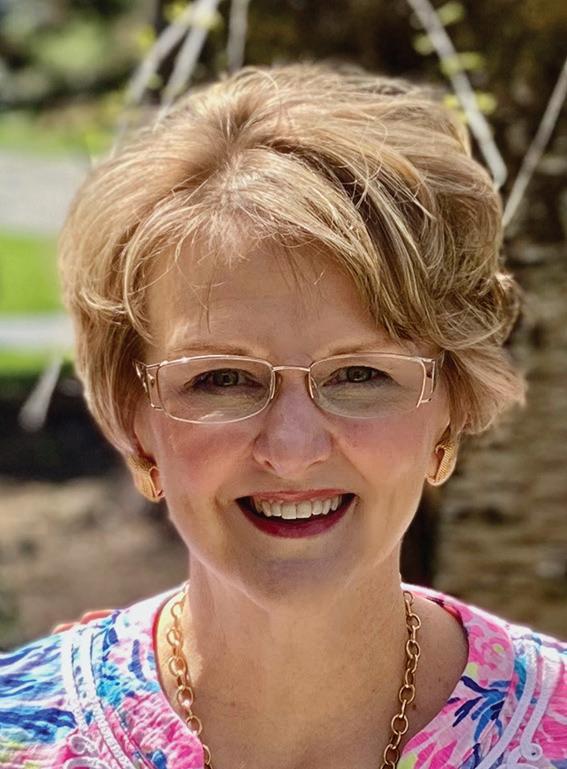
Caroline Goedhart
Mary Long Gordon
Mrs. Philip Heeth Grantham
Laura Hollingsworth Gray
Mrs. James C. Greene
Mrs. Harold Simon Grehan
Priscilla Croswell Grew
Mrs. Ernest Edward Hunt
Mimi Myer Hurst
Ashley Jones Lawrence
Marcy Mason Moody
Mrs. Lucian Newman
Suzanne Phillips Nicholson
Anne Corkran Nimick
Mrs. K. Derrick Powell
Bonnie Atchison Reilly
Dora Lewis Rogers
Elizabeth Lee Scott
Mrs. Jeffrey Scott Shaver
Mrs. W. Richard Smyser
Susan Cislak Sokolsky
Karen Marie Stetler
Edith Huntley Stickney
Mildred Dent Stuart
Louise I. Tausché
Sue Ann Tempero
Susan Woodward Walker
Linda White
Mrs. James C. Wright
The NSCDA gratefully acknowledges these Legacy Circle bequests:

Mrs. George Henry Benning
Mrs. William Dupont Dahling
Mrs. Ernest Francis Ruppe
Miriam Wallace Sellgren
“Legacy giving lets our voices be heard both now and after we are gone. It is very important to me that the NSCDA continues to make an impact in the world. Including that simple bequest in my will is what gave me such joy that day. I knew then that I was not on my own. I was becoming part of another team… one that would support our Society as it continued to be entrusted with history’s future!”
— Liz Forman
The NSCDA has supported education for over a century. Since 1928, the American Indian Medical Scholarship program (AIMS) has been one of our longest running and most successful programs. Intended originally to benefit female nursing students, the program has now expanded to include both male and female students pursuing careers in healthcare for the benefit of their Native communities.
The Martha L. Walden Fund was recently established to endow AIMS so that the program continues in perpetuity.
Adjacent are profiles of two AIMS recipients who share their gratitude to NSCDA members and aspirations for their future service.
Obtaining my PhD had been a goal for over 10 years. I now plan to use this degree to not only accelerate my own knowledge but to bring more awareness about the importance of research, especially diabetes-related research, back to my tribe, the Turtle Mountain Band of Chippewa Indians, and to Indian Country as a whole. I plan to continue working as a diabetes nurse, while also working on research projects that will expand health care’s understanding of what diabetes is truly like for our Indigenous people.
I have been privileged to have the support of the American Indian Medical Scholarship from The National Society of The Colonial Dames of America. As a mother of five, this funding assisted with my tuition costs while working towards my PhD. I will forever be grateful for this scholarship and for the work the NSCDA is doing for Indigenous students.
✱ Send a gift to NSCDA designated to help fund AIMS scholarships.
✱ Support the permanent endowment with a gift to the Martha L. Walden Fund. This is a wonderful way to honor a loved one.
�� Create an additional four-year scholarship by pledging $12,000. Our profound thanks to the Oregon Society and Pennsylvania Society, Allegheny County Committee for being the first Corporate Societies to make their four-year commitments to support a student!
I am a Navajo woman who grew up on the Navajo reservation. Having served several years in the Marine Corps after graduating from high school, my future goals are to earn my Bachelor of Science in Nursing, become a licensed RN and obtain my PhD as a nurse practitioner. As a fully licensed nurse practitioner I will have a better understanding of diseases that are most prevalent in Native American populations and knowledge of preventative steps I can teach people. I hope to make a positive impact on the Navajo reservation by going out to the most remote areas and bringing health care and health education to the people in their homes.
The American Indian Medical Scholarship has lifted a heavy financial burden from me, and I am forever grateful. Thanks to your generosity, I can continue to pursue my educational goals.
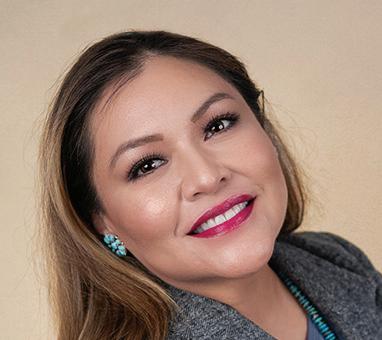
Starting in the 1970s, the National Trust for Historic Preservation noticed a concerning trend of historic hotels being razed and began an effort to consciously celebrate and preserve the finest remaining examples. Beginning in 1989 with 35 charter members, Historic Hotels of America has since grown to over 315 hotels across the USA, Puerto Rico and Washington, DC. Its sister program, Historic Hotels Worldwide, has grown to more than 320 hotels in more than 46 countries.

In February 2023, NSCDA and Historic Hotels of America entered into a marketing partnership in recognition of the important preservation work of both organizations.
• Historic Hotels of America will promote Great American Treasures (GAT) to its guests, many of whom would otherwise be unaware of such interesting local attractions.

• Dames will receive a special discount of up to 30% off the best available room rate at participating Historic Hotels of America and Historic Hotels Worldwide.
• Volunteers, donors and staff at GAT sites are also eligible for this discount.
In 2000, the National Trust for Historic Preservation presented the NSCDA with the Trustee Emeritus Award for Excellence in the Stewardship of Historic Sites, recognizing its century-long preservation efforts. Our new marketing alliance continues this fruitful partnership between these preservation-focused organizations.
Historic Hotels of America emphasizes the stories behind these properties similar to the way the Great American Treasures portfolio endeavors to make history come to life at its museum properties. Conveniently, Historic Hotel properties can be found in close proximity to many GAT sites.

SAVE UP TO 30% OFF BEST AVAILABLE RATES at more than 200 participating Historic Hotels of America with offer code NHP. Special NHP rates are subject to availability, not available during conferences and special events and only offered through advance reservation online: historichotels.org.

For more than 128 years Honorary Presidents have been recognized as Dames who have served this organization with distinction. Honorees embody the characteristics of leadership, high standards, uncompromising integrity and commitment. Their energy, dedication and continued engagement serve as models for all Dames. We deeply appreciate their past and present involvement with the NSCDA.

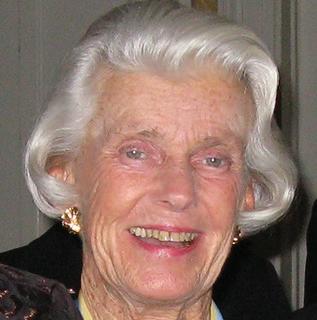

Mimi Hurst engaged this esteemed group of the six current Honorary Presidents for their insights by posing three questions about being a Dame. Enjoy their knowledge, unique hopes and wisdom as they reveal what's in their hearts and minds about Damehood! (Regrettably, Nancy Nimick was unable to participate.)
What are your hopes for the future of NSCDA?
DUFF: My hope for the future of the NSCDA is that each generation will continue to inspire future generations of Dames to create their own legacies as they keep our nation’s history alive.


MOODY: I hope it will continue to attract such remarkable women who will find ever new, more creative ways of protecting and promoting the unique and wonderful American heritage our ancestors worked so hard to establish.
GRIPEKOVEN: My hope is that the profound patriotism which guided the early Dames continues to inspire future generations; that future Societies become increasingly involved in history education; that in these rapidly changing times the Dames “stimulate a spirit of true patriotism and a genuine love of country.”
COBB: I hope the Dames will continue to support our museums and help with education both in schools and at conferences. Our form of government, created by the founders, is unique and the reason so many want to live in our wonderful country!
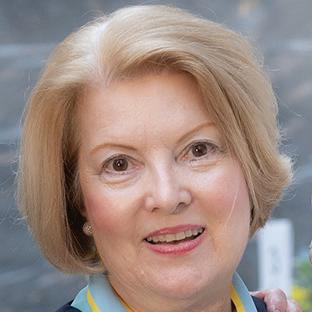
WICKERSHAM: My hope is that membership will continue to grow, that respect for the American flag will continue to be stressed and that the unique nature of each Corporate Society will always be respected.
PROJECT : The NSCDA Oral History initiative, spearheaded by the National Historical Activities Committee, endeavors to preserve the history of the NSCDA, our historic sites and our Corporate Societies through the voices of Dames who made it happen. These sessions will create a permanent historical record, capturing a timely picture of all things relevant to Dames through the eyes of those who know it best. The recordings will set out to examine the contemporary organization from diverse perspectives: Dames in leadership positions, those implementing the mission of the NSCDA, those affiliated with our projects, and the casual observer who wishes to articulate her Dames experience. Future Dames should find much of interest in these records.
What about the Dames has brought you joy?
DUFF: Being with other Dames and engaging our members from around the country. When I was President, I enjoyed visiting the Corporate Societies, meeting so many of our members and learning about their various projects and the creative ways in which they interpret our mission.
Serving as the NSCDA Travel Program Ambassador has its special joys. Through the travel program, we are providing for lifelong learning experiences and are creating opportunities for greater camaraderie among Dames from all over the country. When Dames get to know each other by meeting and traveling together, we create an even stronger Society to carry out our mission.
MOODY: My relationships with other Dames, both locally and all across the country, has been the most significant source of joy as a Dame. I have met and developed many wonderful relationships with fantastic, talented, creative, energetic and like-minded women. It has been the greatest pleasure to get to know these women as we have pursued the common purpose of protecting and promoting our heritage, which is so close to my heart.
GRIPEKOVEN: I cherished friendships with wise, cheerful, generous and ageless women from across the country... I delighted in the shared purpose of preserving and sharing our founding fathers’ and mothers’ legacy. I enjoyed learning first-hand about the geography of our country.
COBB: I am sure many Dames say the same thing (and that’s because it’s true), it is the people I met and the friends I have made all over the country and in England that have brought me joy.
WICKERSHAM: Meeting in-person and getting to know fellow Dames has been a constant joy— most especially while I was President. Also, during my tenure as President, my travel to all four Regions was wonderful. The opportunity to participate in Regional meetings was always a joy as well.
What advice would you give your younger self as a new Dame?
DUFF: I would encourage all new members to identify the programs and projects that interest them and to become engaged with the Dames from the very beginning.

MOODY: Say “ yes ” when asked to get involved and enjoy it all! And don't be afraid to suggest new ways of doing things.
GRIPEKOVEN: Get to know as many Dames as you can and participate in as many committees and events as possible! You’ll learn a lot and have a great time volunteering with the creative, adventurous and knowledgeable ladies who safeguard the stories and artifacts of our Colonial history.
COBB: I would encourage her to attend as many National meetings and conferences as possible. You learn so many useful things and interesting facts of our history. I still love going to new citizen Naturalization Ceremonies to see how much becoming a US citizen means. They don’t take our freedoms and blessings for granted.
WICKERSHAM: I can’t think of advice I might have given myself when I joined the NSCDA. I do, however, remember words from my mother who was quite miffed because her Scottish ancestors in Canada didn’t move into the USA until too late. My ancestor William Shurtleff is on my father’s side. When the Nominating Committee asked me to be National President, I took a very long time to say yes. Finally my mother said, Joan you just want to be a worker bee. They are asking you to be their queen bee! I took a long walk on the beach and said “ yes. ” Sue Armstrong, who was the President of the Pennsylvania Society and hence the chairman of the National Nominating Committee, gave my mother a huge thank you!
Region I is comprised of 10 western state Societies with incredibly diverse interests, programs and climates. It is the Societies’ differing pursuits that inform the perspective and richness of Region I, especially in terms of current patriotic service activities.
Arizona has a long-term relationship with the Navajo Nation. Their members engaged 20 Navajo veterans in the Veterans Oral History Project interviews, and in addition, they hope to interview a WW II code talker.
California had a program on the Fisher Houses, which provide accommodations for families of service members receiving medical care far from home. It supports the site in Palo Alto.
Colorado is planning Naturalization Ceremonies at its two historic properties, and it is growing Patriotic Service Committee programs for greater Society visibility.
Hawaii sponsored a FiDo service dog to help an Oahu veteran with PTSD, and it contributed to Oregon’s Native American Nurse Education Program in 2022.
Kansas presented the 2023 American
Heritage Award to “Friends of the Cherokee Trail.” The Cherokee Trail (which runs from Arkansas to Kansas and then links to the Santa Fe Trail) will benefit from new kiosks and trail fixes in the Kansas section.
Nebraska completed its annual “Stuff a Sock” for hospitalized veterans in December 2022.
Nevada is selecting its next patriotic service project at present.
Oregon sponsored a seeing-eye dog for a local veteran, participated in Wreaths across America and supported its own Native American Nurse Education Program.
Washington is identifying heritage projects for grants, ranging from $5,000–$20,000 and will be gearing up for its annual History Day.
Wyoming has great interest in the VetDogs program and will revisit its successful Constitution Day program with Sheridan High School in September 2023.
Patriotic service encompasses so many wonderful activities, and Region I is supporting many options with great success.
In the 1920s NSCDA members began efforts to “give honor, aid and assistance to our service personnel and to fund opportunities to learn and celebrate the American form of democracy.” Region II continues this tradition of patriotic service.
The Illinois Society offers two dinners each year for sailors and their families at Naval Station Great Lakes. This Illinois Society tradition started in 2004.
The Indiana Society completed a comfort items collection drive with all donations given to homeless veterans, along with plastic sleeping mats the Dames had woven. Other projects being considered include providing lessons to elementary school classrooms on the history of the American flag.
The Iowa Society was delighted to offer a full scholarship to the state's Congressional Seminar Essay Contest winner.
Kentucky Dames wrote over 100 notes to women veterans thanking them for their service, participated in Wreaths Across America at two cemeteries in Frankfort and Louisville and purchased two weather resistant Kentucky Society flags for use at special events. The committee continues to collect oral histories, including recent additions from three Kentucky women veterans.
Michigan Society members hosted a gathering to collect cards for veterans, which were distributed to past service members at the Detroit VA hospital.
The Minnesota Society established the Colonial Dames of America Scholarship in 1953. Working with University of Minnesota staff, the Dames continue annually to select scholarship recipients. The students' exposure to varying cultures and the power of one-on-one diplomacy is appreciable. The Society will select this year’s awardee this spring. The Minnesota Society also annually contributes to the Minnesota Veterans Home to cover the purchase of newspapers.
The Missouri Society is working on its next project and will be pleased to share details at the NSCDA National Conference in St. Louis this fall.
Ohio has long participated in Naturalization Ceremonies, passing out American flags to newly naturalized citizens. Ohio Dames most recently welcomed the country’s newest citizens at a ceremony at Summit Country Day School.
Wisconsin Society Dames are looking forward to their annual Flag Day celebration in June.
Alabama Arkansas Florida Georgia Louisiana Mississippi North Carolina Oklahoma South Carolina Tennessee Texas
Alabama Dames have two essay contest winners who will attend the Congressional Seminar in Washington, DC. In collaboration with the city of Mobile, Alabama Dames have erected a statue of a WWI soldier in Memorial Park to honor veterans. Alabama Dames will award $500 collegiate scholarships for work in American history.
Georgia Dames have five Congressional Seminar Essay Contest winners and an additional cohort of four students who will vie to become National winners. Three Town Committees participated in Why America is Free (WAIF) programs. Patriots Day was a tremendous success at three schools, where the boys learned Latin and drill instruction; the girls received instruction in deportment, language of the fan, the taking of tea and sewing. The Atlanta Town Committee held a WAIF one-week summer camp. Four of Georgia’s six America’s VetDogs have received their vests and are being trained.
Florida Dames attended Naturalization Ceremonies and supported local veterans with cards, books and gift cards. SOS boxes were sent overseas. Several Town Committees participated in the Veterans Oral History Project and Valentines for Vets. Jacksonville Dames partnered with the Jacksonville Historic Naval Ship Museum USS Orleck (DD-886) and veterans for the “All Hands on Deck” fundraiser.
Louisiana Dames honored veterans through the annual Wreaths Across America event and presented the Parade of Flags program at veterans’ and retirement homes. New Orleans held its annual Bazaar raising funds with Dames’ made foods and glorious golden angel statuettes. Three state winners of the
Georgia Society Patriot’s Day, The Dame School | Fine Stitchery, Taking of Tea & Polite Conversation, Fine Handwriting, Dame volunteers

Congressional Seminar Essay Contest will travel to Washington, DC.
North Carolina Dames participated in Valentines for Vets, with each Dame being asked to buy two Valentines for WW II veteran recipients.
Oklahoma Dames participated in Colonial Day at the Capitol, bringing early American History to life for fifth-grade students across the state. Reenactors from Colonial Williamsburg participated, and meeting rooms featured interactive Colonial trades and games. Thousands more students participated via virtual Colonial Days presentations.
Tennessee Dames have two Congressional Seminar Essay Contest winners. Members are sending Valentines to veterans, and the Tennessee Society is hosting a training session with the Library of Congress for the Veterans Oral History Project.
Texas Dames have two essay contest winners who are excited about attending the Congressional Seminar.
South Carolina Dames’ VetDog “Carolina,” sponsored with the North Carolina Society, made her debut via photograph at South Carolina’s annual Christmas luncheon. South Carolina also participated in Valentines for Vets.
While every Corporate Society in Region IV supports our mission through patriotic service activities, what follows are several highlights from this region.
The Connecticut Society interviewed a Vietnam War veteran as part of the Veterans Oral History Project and participated in the Valentines for Vets project.
At the DC Society’s Annual Christmas Tea and Boutique, Dames collected donations and raised money for Fisher House, which houses and supports military families.
In Maine , the Dames attended a Naturalization Ceremony along with Governor Janet Mills and members of the League of Women Voters. Maine Society Board Member Gini Link participated in the receiving line at the ceremony and handed out a bookmark to each of the 50 new citizens.
Maryland sponsored many wreaths for the Wreaths Across America campaign and donated 32 pairs of socks, stuffed with toiletries and small treats, to veterans in Severna Park. The Dames included a notecard, thanking the veterans for their service to our country.
The New Jersey Dames sponsored 205 wreaths as part of Wreaths Across America. Their Undergraduate History Award Scholarship winner, Cassius Blakenship, presented a captivating encapsulation of
his prize-winning essay at their membership meeting.
In Pennsylvania, the Dames participated in a Naturalization Ceremony for 80 new citizens. This ceremony was their first since the start of the pandemic and included a parade of flags, a reading and welcome bags.
The Vermont Society sent approximately 100 Valentines to the residents of the Veteran’s Hospital in Bennington, and they sent flowers to Margraten in the Netherlands for Memorial Day. The Vermont Dames have interviewed 16 veterans for the Veterans Oral History Project, including three female veterans.
Virginia Dames have found myriad ways to support our mission through patriotic service. These activities include visiting a local nursing home with cadets, replenishing snacks at the Richmond International Airport USO lounge, donating supplies to a veteran’s care facility and supporting Angel Canines for Wounded Warriors.
The West Virginia Society learned how to interview veterans from Marianna McIntyre, National Patriotic Service Committee Vice Chair for Region III. It began the Veterans Oral History Project by interviewing a veteran who is married to a West Virginia Dame. These Dames also sent Valentine’s Day cards to the veterans who participated in the Veterans Oral History Project this year.
The NSCDA reorganization approved at the 64th Biennial Council (2022) may require State Society bylaw changes. This article offers guidance on how to address this matter.
“In order to give the organization the greatest freedom to act within its object, bylaws should be made no more restrictive nor more detailed in specification than necessary.”
What a lofty goal! Governing documents that provide “… the greatest freedom to act within its object …” Is this goal even possible with so many other documents imposing requirements on the bylaws of NSCDA Corporate Societies? The answer is “yes” if we understand how all of the requirements help to streamline the bylaws.
Rules Governing an Assembly (from highest to lowest in authority):
1. Law: rules prescribed by applicable law — federal laws and state laws
2. Corporate charter: for incorporated groups — all NSCDA Corporate Societies are incorporated
3. Bylaws or Constitution: basic rules relating principally to itself as an organization
4. Rules of order: written rules of parliamentary procedure
— Special rules of order: specific to organization
— Parliamentary authority: general book of rules — Robert’s Rules of Order Newly Revised, 12th edition
5. Standing rules: administrative details
6. Custom
But, wait, that’s not all that impacts your Corporate Society governing documents.
• NSCDA Constitution — Article V – Corporate Societies
• NSCDA Bylaws — Article XIX – Corporate Societies
“If the unit for which the bylaws are to be drawn up is subject to a parent organization or superior body, such as a state or a national society (or both), or a federation, the bylaws governing at these higher levels should be studied for provisions which are binding upon subordinate units in a way that must be taken into account. The bylaws of a subordinate unit need to conform to those of a superior body only on clearly requisite points.”
References: Robert’s Rules of Order Newly Revised, 12th edition
If a rule is contained in another document that has a higher authority, it does not need to be included in the bylaws, but if included it cannot conflict with the higher authority documents.
An example: The name and the object of a Corporate Society must conform to its corporate charter.
If a rule is not in the bylaws or the documents with higher authority, then documents with lower authority may prevail, but in the order stated.
An example: The Corporate Society bylaws do not contain an article on disciplinary procedures; therefore, the Corporate Society is governed by Robert’s Rules Chapter XX Disciplinary Procedures.
Corporate Society bylaws may contain rules that override its parliamentary authority, Robert’s Rules.
An example: If Corporate Society bylaws do not define a quorum for regular meetings, the Corporate Society would be subject to Robert’s Rules that establishes a quorum. “To accomplish their work, voluntary societies that have an enrolled membership generally need a provision in their bylaws establishing a relatively small quorum — considerably less than a majority of all the members.”
Chicago’s oldest house is moving into the future, taking the Illinois Society on a new path by telling the shared history of our city. On November 16, 2022 the Chicago City Council passed an ordinance to rename Clarke House as the Henry B. and Caroline Clarke/Bishop Louis Henry and Margaret Ford House. The house, built in 1836, one year before the city’s incorporation, received this new name to recognize the people who preserved the house in the 20th century.
In her press statement announcing the change, Mayor Lori Lightfoot said, “The renaming serves to tell a more complete history of Chicago’s oldest house that not only acknowledges its original owners, but also the significant contributions of Bishop Louis Henry and Margaret Ford in preserving its legacy for future generations to cherish.”
Ford acquired the property 1941, planning to use the building as a rectory for the church he founded, the St. Paul Church of God in Christ. By 1948, the house was not only a family home and headquarters for church ministry, it also provided essential support for Black Americans migrating from southern states. Mrs. Ford opened a café in the basement to serve lunch to a community that
had limited options available for either housing or dining.
By the 1950s, Bishop Ford was organizing annual “birthday celebrations” to raise funds for the house’s restoration and maintenance. The local community embraced these events, with congregation members dressed in period costumes providing food and music, attracting many attendees including statewide political and community leaders. During the 126th anniversary celebration in 1962, Ford was quoted by the Chicago Tribune as saying, “Chicago has often been referred to as the city which doesn’t have a place for landmarks. We will continue to fight off demands to tear down this building because we feel it deserves a place in Chicago on an equal footing with the Water Tower,” a landmark that survived the Great Chicago Fire of 1871, as did the Clarke-Ford House, which was located only a few blocks from the fire’s furthest incursion.
This Great American Treasure has been an NSCDA project in partnership with the City of Chicago for over four decades, a collaboration formed when Bishop Ford gave the house to the city in 1977. The Illinois Dames assisted the City in completely renovating the house and achieving museum accreditation.
The Dames provided period floor and wall coverings, lighting, decorative objects and numerous furnishings, including a unique desk rescued from the Chicago Fire. The significant collection of mid-19th century objects on display illustrated the lives of the first inhabitants of the city’s oldest house and supported the preservation of an important story in the city’s development.
Bishop Ford’s only stipulation for his gift was that his work in preserving the property be recognized in perpetuity. While there is a photo and an explanatory sign on display, the Ford story has never been fully presented. Members of the Illinois Society had been working for several years toward enhancing the Ford presentation in the museum until the City delayed developments for a re-evaluation.
Preservation has evolved to emphasize omitted histories in order to deliver a more complete, more inclusive view of the past. Therefore, in 2023 the Chicago Department of Cultural Affairs and Special Events (DCASE) will begin reimagining the content and programming for ClarkeFord House. The NSCDA-IL has embraced this effort to update the Clarke-Ford House interpretation and looks forward to learning the historic stories we have not yet heard.

 by KATE STEIR , Curator of Collections, Gunston Hall
by KATE STEIR , Curator of Collections, Gunston Hall
What is this strange broken chair? In fact, this chair fragment offers a glimpse into the sophisticated work of two craftsmen and serves as an important source for understanding the history of architecture and indentured servitude in colonial North America.

A set of as many as 12 of these chairs once graced the dining room at Gunston Hall. The carvings on the front of these chair legs echo the design motifs within the dining room at Gunston Hall. Both the room and its matching furniture were designed by William Buckland, a young, indentured joiner and carpenter. Buckland used his skill, literacy and knowledge of popular English decorative styles to rise above the role of carpenter and refashion himself as an architect, a much more respected profession. Designing furniture to complement the architectural elements of a room and fit the scale of the space
was an important way that British architects in the 18th century established themselves as tastemakers. Buckland’s effort to do so at Gunston Hall provides an early hint of his ambition and skill.
However, Buckland did not work alone. Much of the fine wood carving at Gunston Hall was performed by master carver William Bernard Sears, another indentured servant. While Sears was a skilled craftsperson and little is known of his life before Gunston Hall, the unique technique of his carving suggests he might not have completed a formal apprenticeship. Sears continued to practice his craft after leaving Gunston Hall and enjoyed a well-respected career. With his skill, Sears brought Buckland’s design for this chair to life. Stories such as the one behind this chair allow Gunston Hall staff to illustrate the history of decorative arts and political and social life in colonial America.
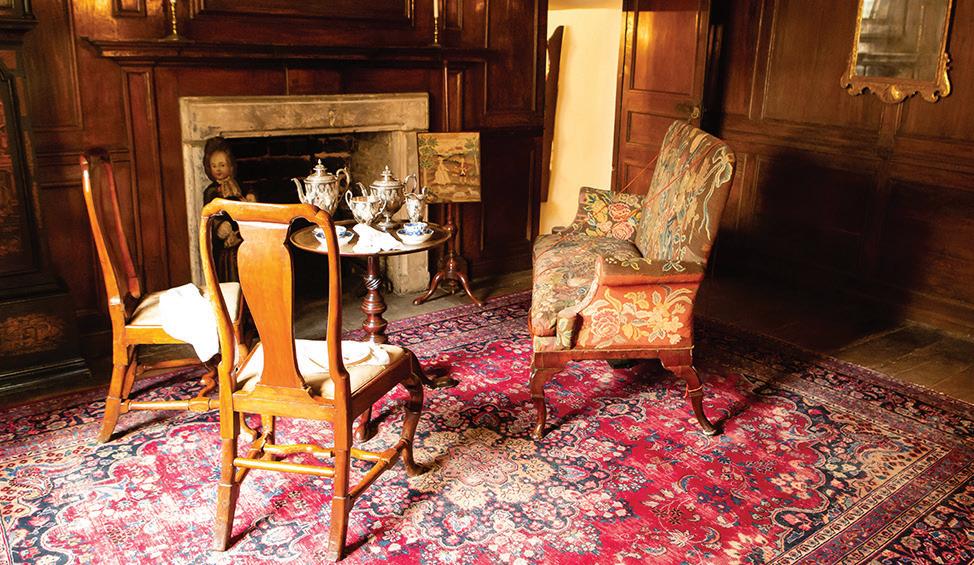 by CHARBRA ADAMS JESTIN , Junior Representative to Sulgrave Manor Trust
by CHARBRA ADAMS JESTIN , Junior Representative to Sulgrave Manor Trust
Sulgrave Manor, the ancestral home of George Washington in Northamptonshire, England, was owned by various branches of the Washington family from the time of its initial construction in 1539 until 1659 when it was sold out of the family.
In 1673 Sulgrave Manor was purchased by a family who held the property for more than 150 years. Under their care, an extensive wing was added to the manor house that included an elegant Queen Anne oak-paneled parlour whose restoration in 1930 was due to the generosity of Ohio Dame Mrs. Albert H. Chatfield (Helen Fletcher Huntington), who served on the Board of Sulgrave Manor from 1929 until her death on Christmas Eve, 1951. She funded the restoration in memory of her son, Frederick Huntington Chatfield, who had visited the manor with his mother and died shortly afterwards from typhoid fever.
The Oak Parlour is one of the most welcoming rooms in the manor house. Built about 1700, it is sunny, diminutive and only eight feet in height. It is paneled floor to ceiling in raised oak panels with cornice, chair rail and chimney piece all repeating the same molding design.
When the restoration began in 1930, the room had been much used by tenants and the oak paneling was covered in multiple layers of brown paint and wallpaper. Once stripped away, the lustrous English oak of the original construction was revealed. Fortunately, the trim of the mantel was rescued from a junk

This exquisitely restored parlour with its precious artifacts is the result of Dames support for the preservation of Sulgrave Manor. We can take pride in the work of Mrs. Chatfield and the continuing support provided to Sulgrave Manor by the NSCDA Sulgrave Manor Fund for the Future as well as ongoing fundraising by Friends of Sulgrave Manor. In the words of Mrs. Chatfield:
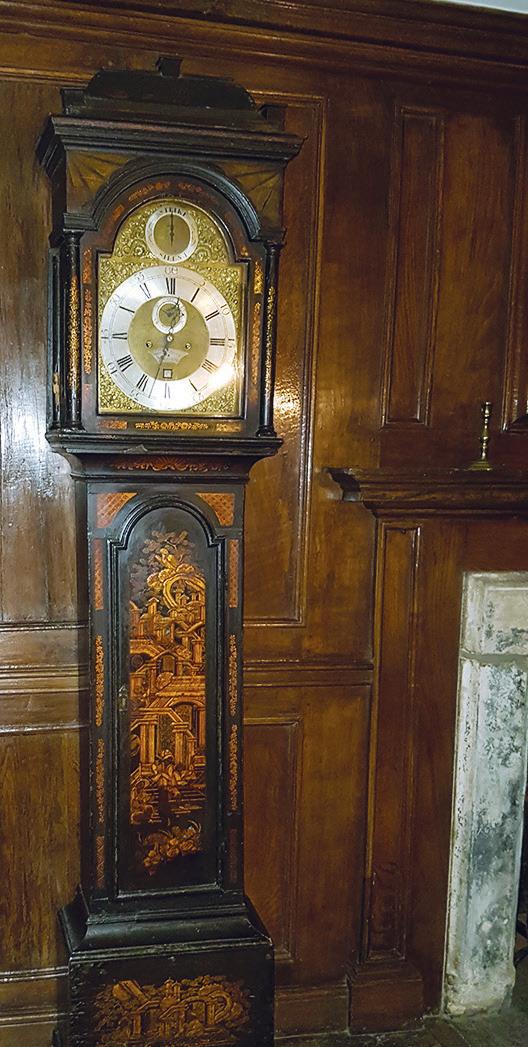
We cannot fail to be reverently grateful that we have had a part in the care of this beautiful shrine…CLOCKWISE FROM TOP LEFT: Longcase clock made by Thomas Utting of Great Yarmouth ca. 1730/1740; Chatfield-restoration commemorative plaque; The Oak Parlour. All photos courtesy Sulgrave Manor.
For centuries women have gathered in clubs and societies. Their goals were religious, charitable or simply social. They moved in accord with one of human beings’ most fundamental urges—to associate. In Democracy in America Alexis de Tocqueville noted that the urge to associate is quintessentially American:
After the Civil War, American women broadened their focus from benevolence to developing themselves through culture, art and learning. Wesleyan College in Macon, GA and Mt. Holyoke, MA which vie for the title of the first women’s college, had been established in the 1830s. Women already studied to be lawyers and doctors. Women also strove to reform society through abolishing slavery, organizing temperance movements and addressing the causes of poverty. Parlors and dinner tables echoed with debate about whether women should be permitted to vote.
The designation “first women’s club” (something different from a sewing circle or missionary society) is generally awarded to the Sorosis in New York. In 1868, Jane Cunningham Croly, a journalist and syndicated columnist who wrote under the pen name Jennie June, was forbidden to attend Charles Dickens’ address at the Press Club of New York because she was a woman. She objected loudly and publicly. By the time the Press Club relented, she and 12 other leading career women had already
founded the Sorosis as an organization for social and intellectual exchange plus mutual support for ambitions beyond the home.
Club founders and early members were renaissance women—dynamic and often very highly educated and well-traveled; fluent in French, German, Greek and Latin; tutored in algebra, calculus and the classics. They were journalists, writers, doctors, educators, philanthropists and musicians. Many, but not all, were suffragists.
Women’s clubs flourished to such a degree that in 1898, a mere 30 years after the Sorosis was founded, Jennie June penned a three-volume history of the movement. These clubs promoted self-improving culture and/or practical work and activism on social issues.
By the early 1900s the club woman had become a notorious figure, and the more than 5,000 women’s clubs had become big business. The club woman had at least three special magazines and myriad handbooks. The Woman’s Manual of Parliamentary Law, with Practical Illustrations was published to ensure that women knew the minute details of conducting meetings—of presiding, debating and making motions.
In the meantime, women and men organized patriotic and heredity/ancestry clubs—DAR, 1890; NSCDA, 1891; the Mayflower Society, 1897; NSCDA’s Associate Societies, from 1896 on. Many of the women who founded Dames’ Corporate Societies were charter members and active leaders in the prominent women’s clubs of their cities (e.g., The Fortnightly of Chicago and the New Century Club in St. Paul, MN) and often the DAR. The overlap in membership among clubs is not surprising. Different clubs met different needs and active women reveled in their various organizations.
If it be proposed to inculcate some truth or to foster some feeling by the encouragement of a great example, they [Americans] form a society.
Between 1890 and 1893, another important group of females, the Board of Lady Managers of the World’s Columbian Exposition of 1893 (aka the World’s Fair) in Chicago, was working its magic. The Fair connected women from all over the country and the world. Some of these women went on to establish NSCDA Corporate Societies after meeting and working with other early Dames. For example, the North Carolina Society website states, “Mrs. [Florence Hill] Kidder worked tirelessly to raise funds and support for the North Carolina exposition at the 1893 World’s Fair in Chicago. In the process, she met women from all over the nation, who were passionate about colonial history, many of whom were members of the newly founded NSCDA. Mrs. Kidder returned from the World’s Fair determined to establish a charter in North Carolina ... The NC Society was incorporated in March of 1894.”
Women, Dames and ladies were and are women who through social, cultural and civic engagement embrace a sense of purpose. Their clubs enrich members and the community.
(Partial list of clubs, with bold font highlighting those still in existence.)
1868 Sorosis, New York
New England Woman’s Club, Boston
1873 The Fortnightly of Chicago
1875 Indianapolis Woman’s Club
1876 Woman’s Club of Wisconsin, Milwaukee
1877 New Century Club, Philadelphia
1885 Ladies of the Grand Army of the Republic
Des Moines Women’s Club
1887 New Century Club, St. Paul, MN
1889 New Century Club, Wilmington, DE
The Thursday Club, Greenville, SC
Woman’s Wednesday Club, Fort Worth
1880 St. Botolph Club, Boston
1889 The Acorn Club, Philadelphia
1890 The Daughters of the American Revolution
The Nineteenth Century Club, Memphis
The Woman’s Club of Louisville
Twentieth Century Club, Washington, DC
1891 NSCDA
The Friday Morning Club, Los Angeles
The Woman’s Century Club, Seattle
1893 Woman’s Era Club, Boston
Ida B. Wells Club, Chicago
1894 The Ebell of Los Angeles
The Woman’s Club of Denver
Twentieth Century Club, Reno, NV
United Daughters of the Confederacy
Although membership in some women’s clubs has declined and others have closed their doors, many women's clubs continue to fulfill their missions with grace and energy. The NSCDA remains vibrant in its work to safeguard “history’s future” by telling stories of the people, places and events that helped build this nation and by preserving important sites and artifacts. Since 1891, Dames have proudly enjoyed a lineage tradition that serves as a foundation for relationships that last a lifetime and across generations.
1895 Atlanta Woman’s Club
Phyllis Wheatley Club, Nashville
1896 National Association of Colored
Women’s Clubs, Washington, DC
1898 General Federation of Woman’s Clubs, US and international
1902 Woman’s Club of Colorado Springs
The Garret Club, Buffalo
1903 The Colony Club, New York
The Francisca Club, San Francisco
1904 The Woman’s Club of Raleigh
1909 Cosmopolitan Club, New York
1910 Chilton Club, Boston
1913 The Sunset Club, Seattle
1929 Mount Vernon Club of Baltimore
1932 Sulgrave Club, Washington, DC
There were more than 1,000 women’s clubs in 1890 and more than 5,000 by the early 1900s.
The NSCDA is an enduring, mission-driven women's society. It looks to the future with optimism and a dynamic sense of purpose.
It is the current member who both appreciates tradition and shapes this thriving community for the Dames of tomorrow.
In 1965, Richard Pratt authored Houses, History & People, which brought attention to the 60 historical houses and landmarks of the Dames for the first time. Pratt (1891–1973), a noted architect, landscape designer and author, sought to spotlight the Dames who had “worked their wonders” quietly “behind the scenes” for over 75 years.
Pratt saw the Dames, as they saw themselves, as an historical society that had accomplished the amazing task of preserving history through their sustained stewardship. The National Historical Activities Committee and its members in the various states collaborated on the book with Pratt, providing local color, photographs and stories that he included in his house descriptions. His wonderful book teems with interesting stories of historical places and the people who lived in the homes we now call our Great American Treasures.
Pratt recognized Mrs. J. W. E. Moore, Jr. of Nashville, TN, who chaired the above-mentioned Historical Activities Committee. Mrs. James West Estes Moore, Jr. (Frances Rutland) became a Virginia Dame in 1946. She served for 29 consecutive years with distinction on the National Board. Early on she voiced concern over the lack of promotion of Dames properties. One can see her expression of concern and inclination toward curatorship leading directly to what we know today as our Great American Treasures.
She subsequently served as National Historian (1966–1972). She was a former President of the Tennessee Society and representative of Sulgrave Manor Trust.
House museums continue to play a vital role in our communities, preserving local heritage in perpetuity. These museums inspire reflection and offer an edifying experience that is relevant and accessible. Advancements in digital pedagogy allow us to consider new and exciting ways to program and present historical content for new audiences.
Without effort history can easily be lost, and this work often goes unappreciated. Houses, History & People recognized the admirable work of our predecessors. The NSCDA is spearheading an update to what Pratt called our “country-wide collection.” Dames can look forward to this new volume, American Treasures: Historic People and Places, a complement to Pratt’s magnificent treasury of America’s living history.
EXPLORE MORE: See our Great American Treasures website for the unique ways that NSCDA shares the American story (www.greatamericantreasures.org).
“Houses are history. In an intimate physical sense they are just about as close to history as it is possible to get. In them it is possible to look at history face to face. It is possible to touch it.”
Richard Pratt, Houses, History & People
a nne hollinGsworth wharton, First national historian: “When we look into the faces of some of these Colonial Dames, as they have come down to us in portraits of the time, and read there the strength, nobility, and self-restraint that the lines disclose, we realize how much these women contributed towards the character-building that rendered the Revolutionary period an almost phenomenal epoch in the history of nations.”
The three highlighted women colonists of Jamestown survived the 1622 Jamestown Massacre when settlements were attacked and about 347 (about one-quarter of the population of the Virginia colony) were killed and 20 women and children taken into captivity.
Temperance was born about 1616–17 at the Jamestown Colony. With her father's passing before 1620, this three-year-old girl inherited his 200 acres. Her widowed mother Cicely married Samuel Jordan who built his plantation, Jordans Journey, at Beggars Bush adjacent to his stepdaughter’s land. Samuel Jordan died a year after the Indian massacre when Temperance was age seven and living with her mother and step-siblings. Temperance continued to live at Jordan’s Point, first marrying John Browne and later Richard Cocke of Virginia. It is generally assumed “Bailey’s Creek” was named after Temperance Bailey.
Cicely, an earlier female settler of colonial Jamestown, was one of the few females designated as an “ancient planter.” Traveling alone, ten-year-old Cicely arrived in the American colonies on the Swan in 1610/1611. At age 17, she gave birth to Temperance Bailey (see above). Upon second-husband Samuel Jordan's death in 1623, Cicely obtained oversight of his 450-acre plantation, Jordan's Journey. In the Jamestown Muster of 1624–1625, she is one of fewer than 10 women mentioned as a head of household and the only woman listed as sharing the head of household with an unmarried man. In the year of Samuel Jordan's death, she set-off the first breach-of-promise lawsuit in English North America when she accepted the marriage proposal of William Farrar, who was bonded to help settle her estate, over that of Greville Pooley, who claimed his proposal had already been accepted. In 1625, Cicely prevailed when Pooley withdrew his claim. She later married William Farrar.
In 1621, Mary and her husband Christopher Branch came to Jamestown on the supply ship London Merchant and settled in Henrico County (now Chesterfield). Christopher was one of the few married men making the journey to Jamestown and Addie would find herself a young bride on a supply ship “with 200 men.”
The census or "muster" of January 1624–5 lists Christopher and Mary and their nine-month-old son Thomas living on “Ye College Land,” where The Virginia Company offered inducements for new colonist-settlers to replenish the population decimated by the recent Indian massacre. Mary had two more sons. In 1630, she died and was buried on the Branch plantation, Kingsland. Christopher, though he had three sons to raise, never remarried. Addie would have a granddaughter named Mary, who married Thomas Jefferson (1659–1697) of neighboring Osborne Plantation and was the great-grandmother of President Thomas Jefferson.
To honor the 250th anniversary of the signing of the Declaration of Independence, The NSCDA set an objective to add 250 female ancestors to the Registry of Ancestors (ROA). The ROA now contains 10,000 men and 46 women that candidates use as membership-qualifying lineage. We can celebrate colonial women and enhance the ROA. Help us add to the list. Should you have any questions, please contact either Lisa LiLes, lliles5939@gmail.com, 317–979–1991 or MoLLy Carey, mollyjordancarey@gmail.com, 804–334–5704.


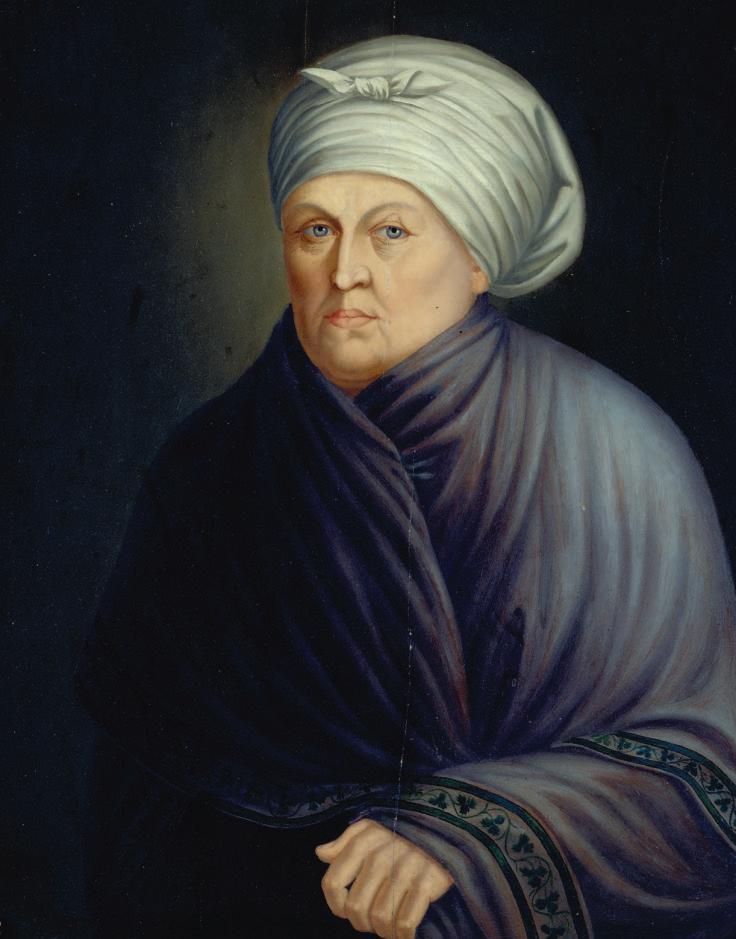 by ELLEN BOOMER , Vice President Residing in Region IV
by ELLEN BOOMER , Vice President Residing in Region IV
Known as the founding mother of St. Louis, MarieThérèse Bourgeois Chouteau was born a French subject in New Orleans in 1733 and died an American citizen in St. Louis, a frontier town on the Osage Nation’s land. Her partner, Pierre de Laclède Liguest, and her eldest son are credited with founding the city. Madame Chouteau is also my matrilineal ancestor. Growing up, my mother told tales of her indomitable spirit and her ambition, tales that were always laced with admiration and awe. When Madame Chouteau’s abusive husband, René, abandoned her and their young son, she christened herself “Widow” or “Veuve Chouteau,” a legal status that enabled her to own property and retain custody of her child.
A few years later, Madame Chouteau met and fell in love with Pierre Laclède; they lived together as common-law husband and wife and had four children. (I am descended from one of Laclède’s children.) As partner in a French trading company, he wanted to grow his business by moving to St. Louis, which was still the frontier in 1763. According to my mother, Laclède went ahead to St. Louis with Madame
Chouteau’s eldest son, and she followed later, paddling 700 miles up the Mississippi with their four children in tow.
With help from members of the Osage Nation, Laclède’s fur trade prospered and he taught Madame Chouteau about the business. When her husband, René, died, she chose to remain a widow rather than marry Laclède and risk incurring his debts. Since their house and farm were already in her name, she was able to grow their trading business and their farm after Laclède died. Many enslaved and free people maintained the farm for Madame Chouteau.
In 1805, she sold some of her property and made enough profit to become one of the wealthiest people in St. Louis. When she died in 1814, she was survived by her five children and 50 grandchildren. The Chouteaus dominated the fur trade and the social scene for more than a century. My ancestor, known as “The Queen,” and the Mother of St. Louis, remains a beloved figure in the history of St. Louis and in my family.
Did you know that your Corporate Society Seal is proudly displayed at National Headquarters Dumbarton House? Each seal was carefully worked on a blue background by the needlewomen of the Dumbarton House Board. The individually framed seals will be hung in our newly renovated Headquarters for all Dames and visitors to enjoy.





